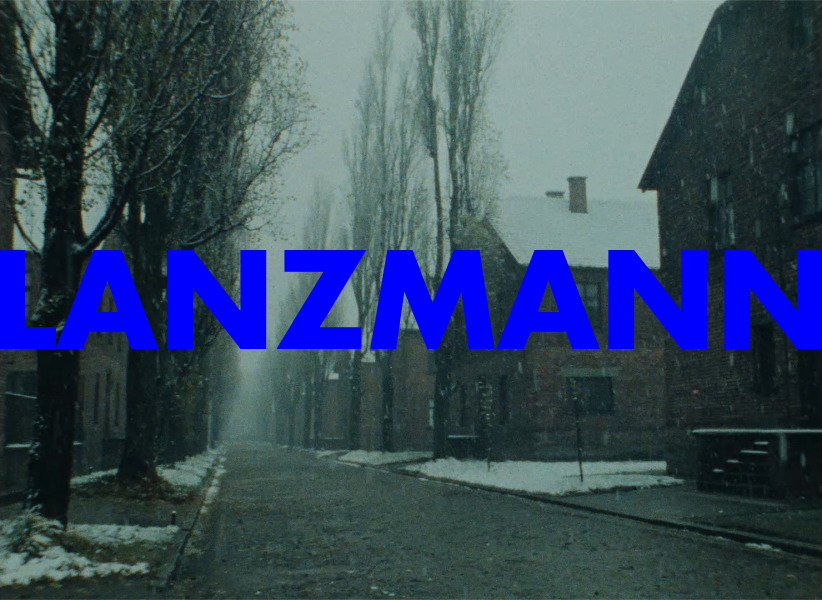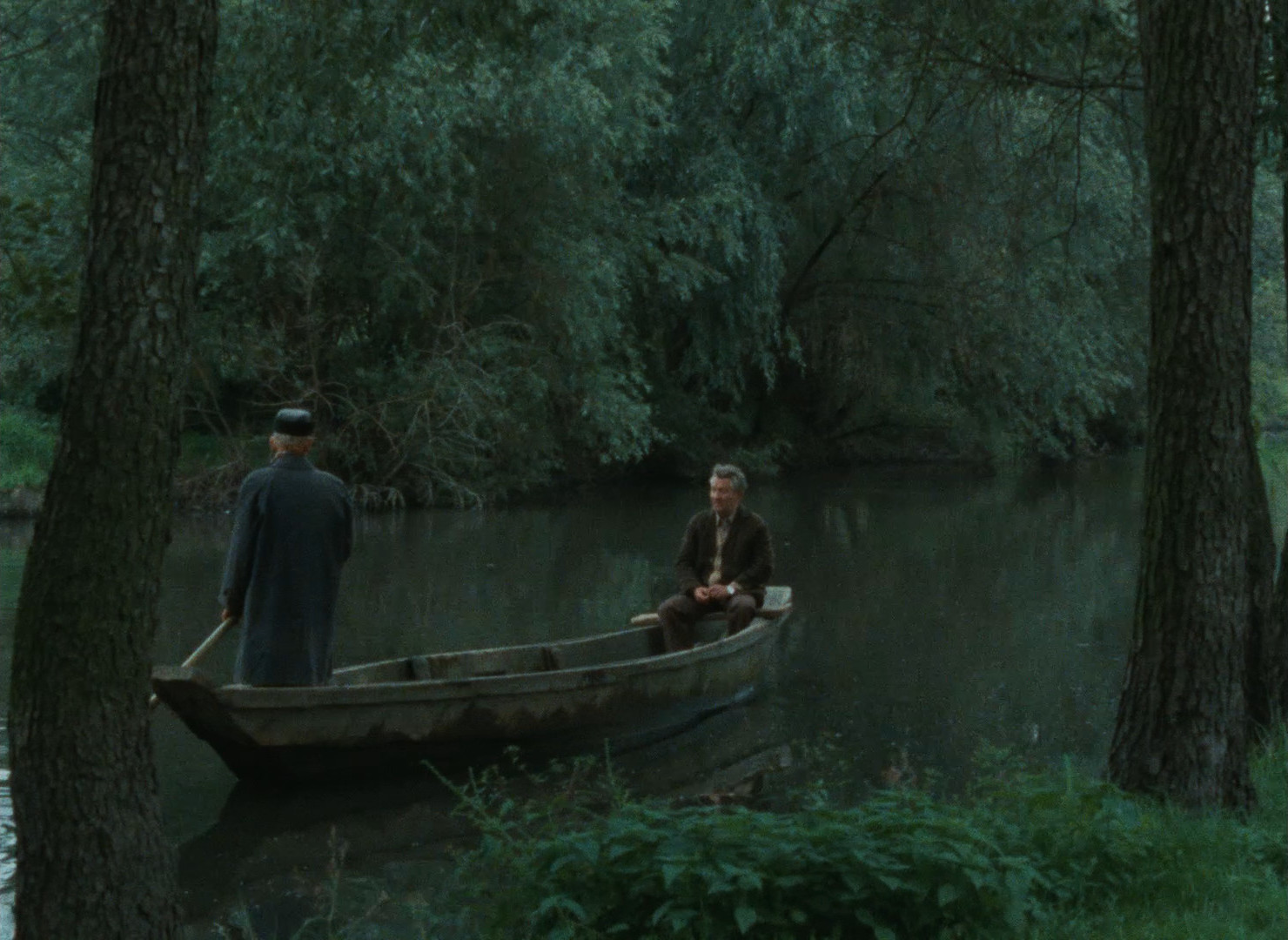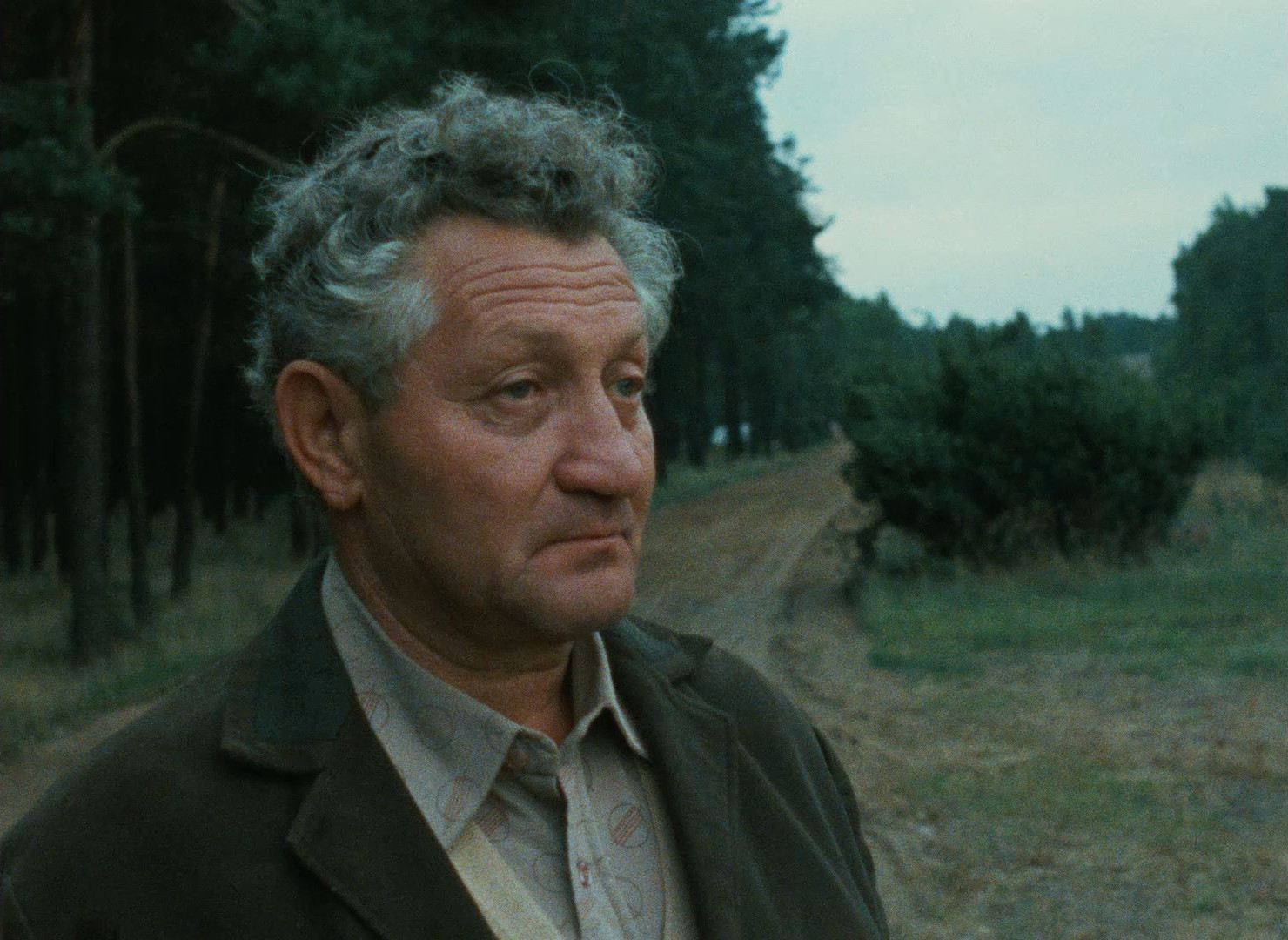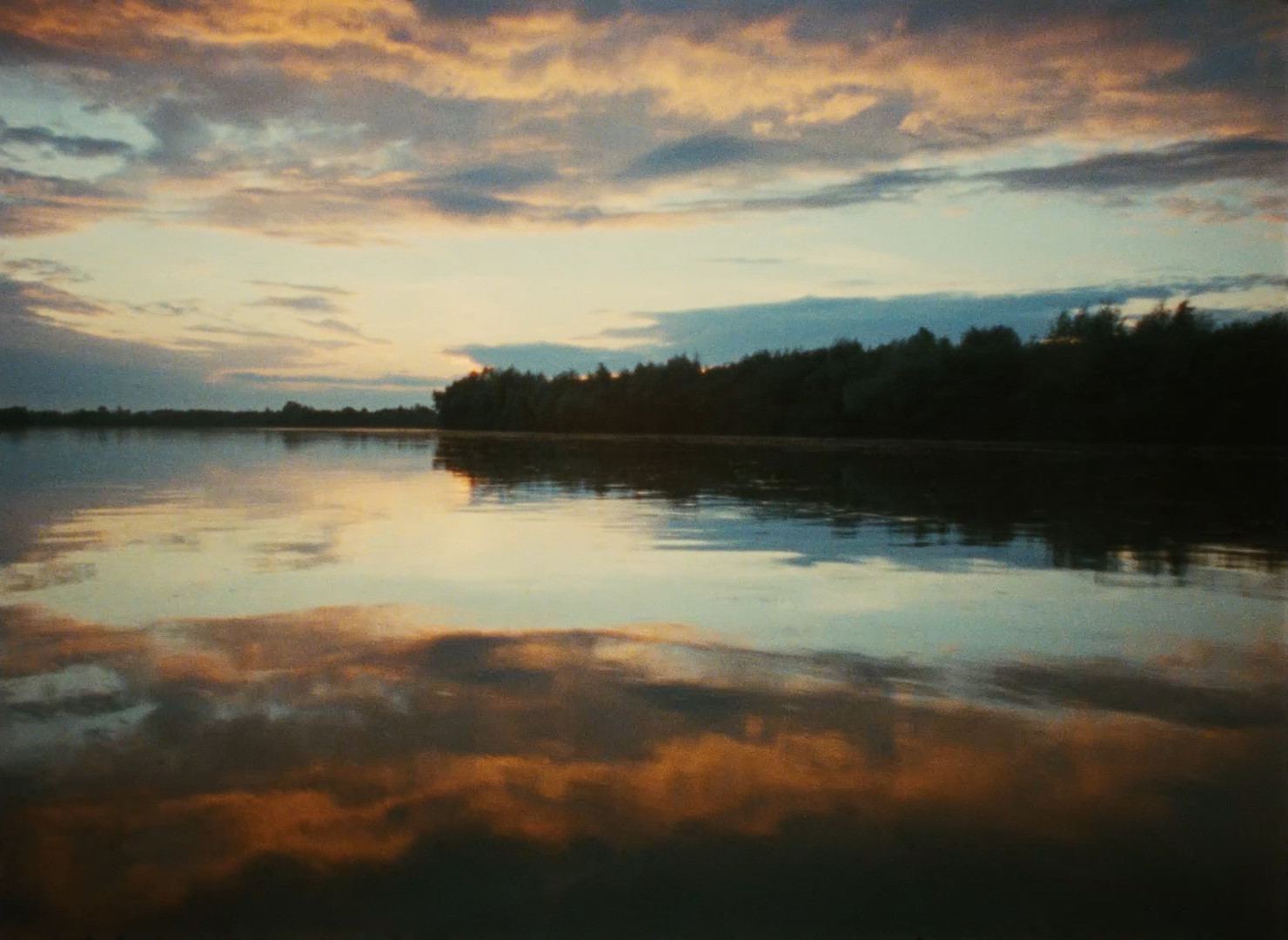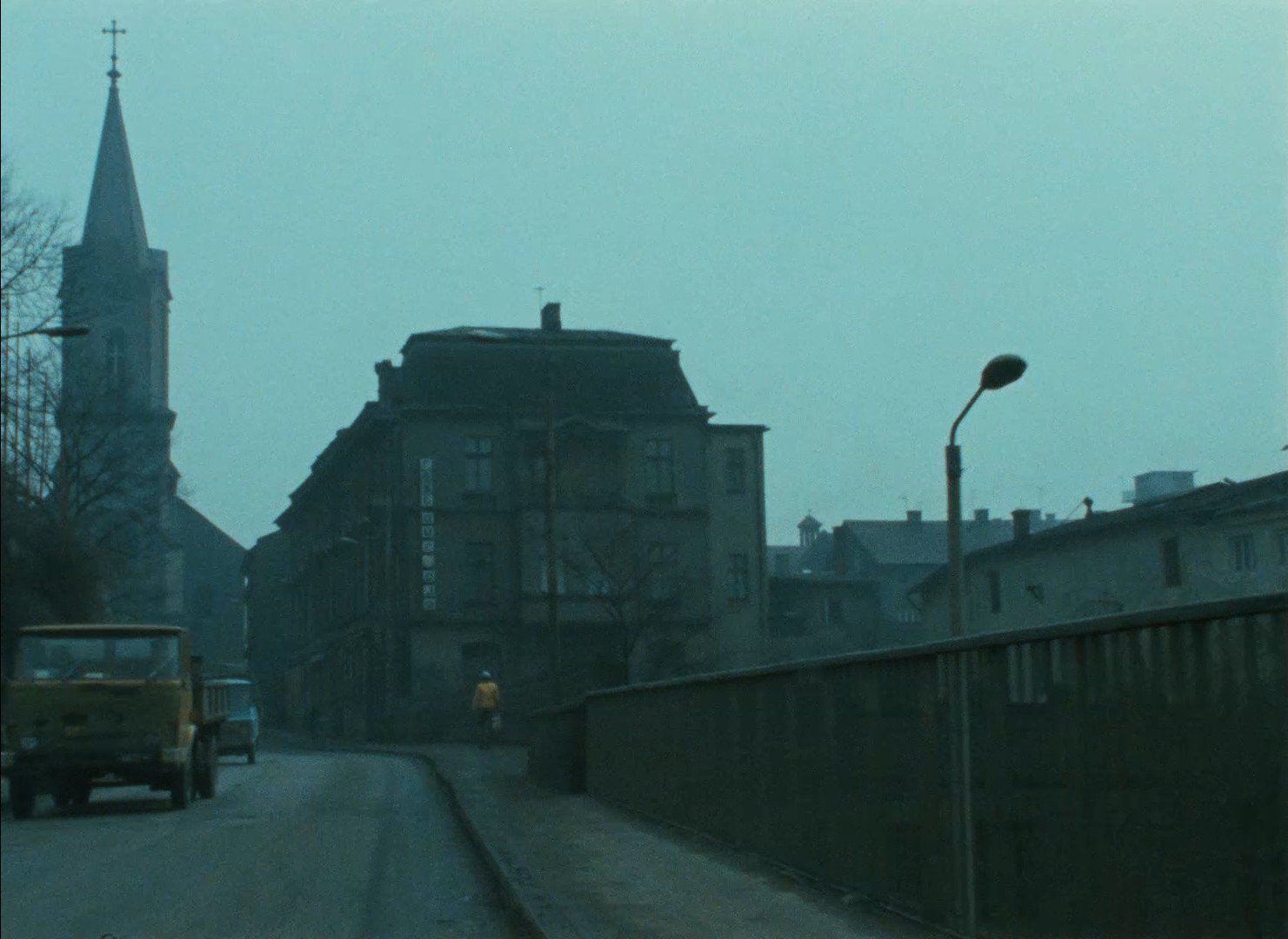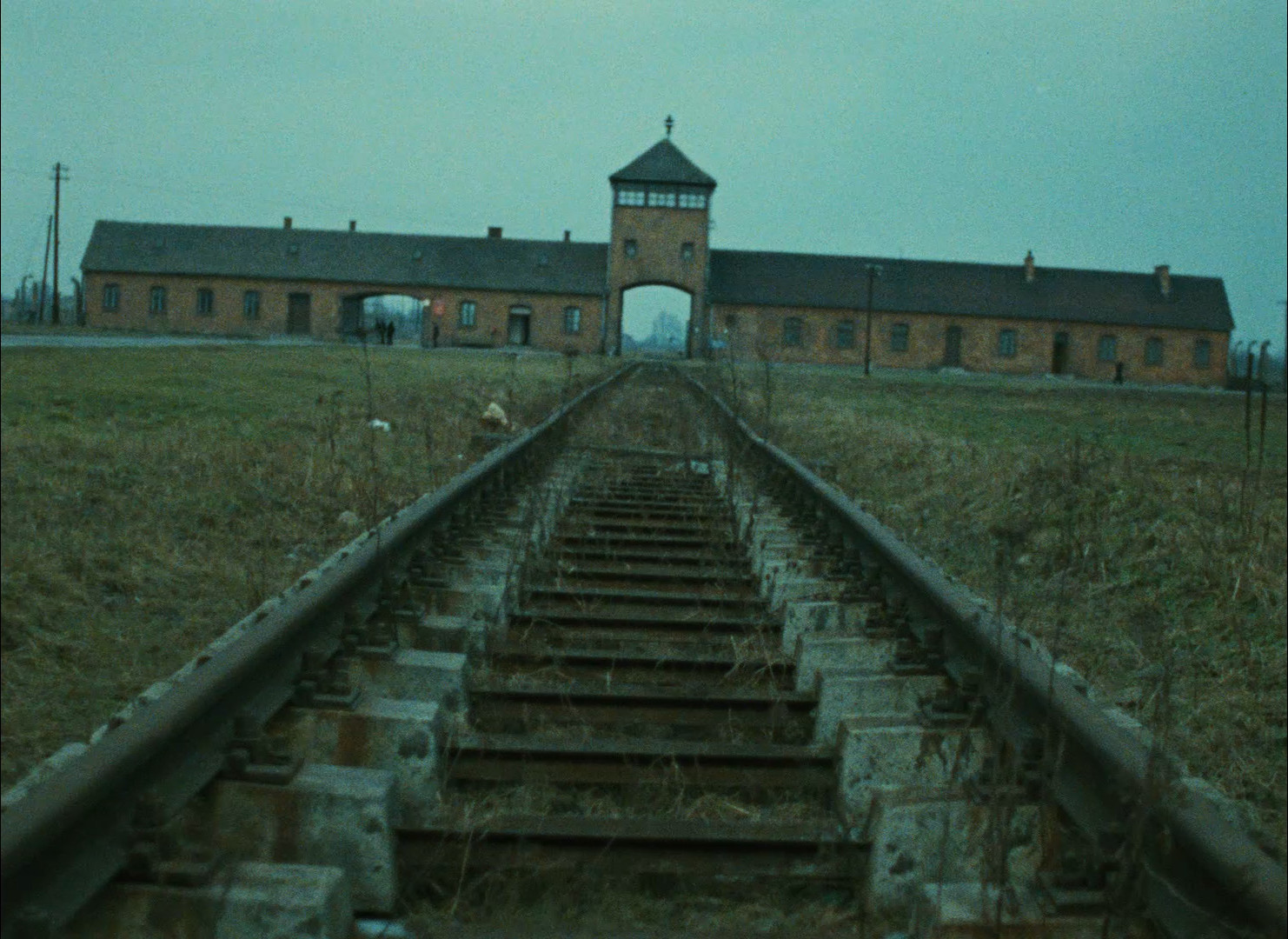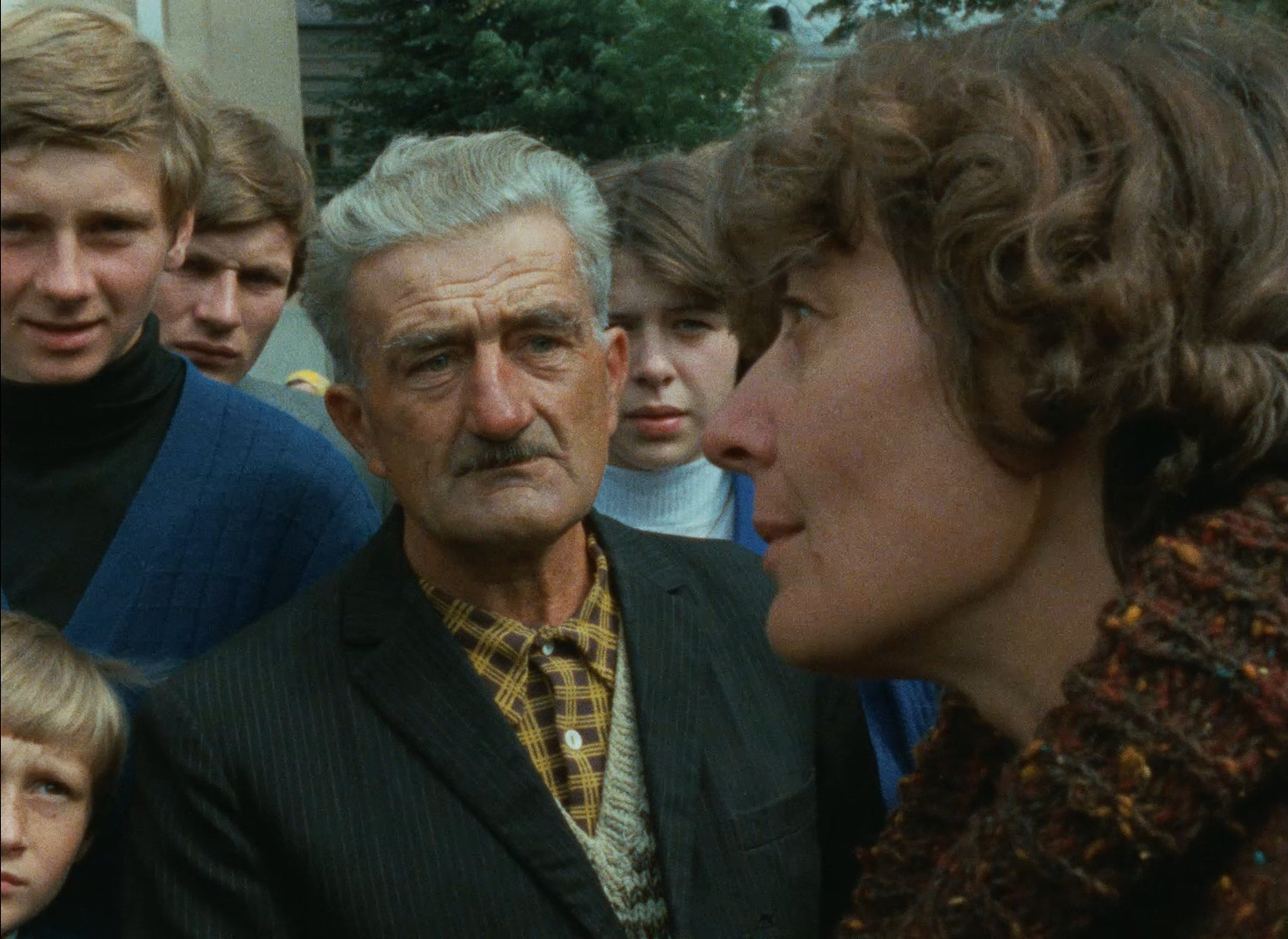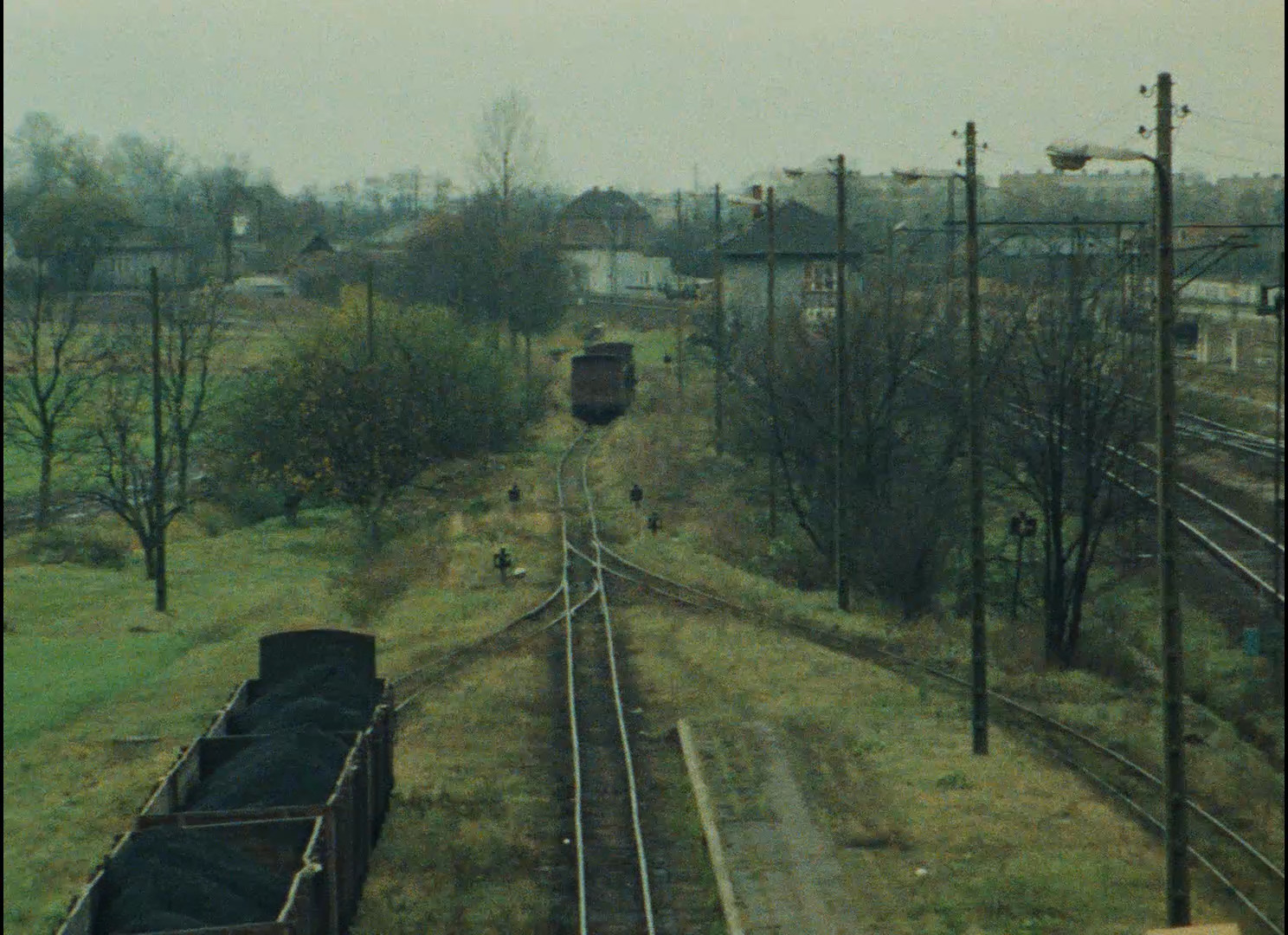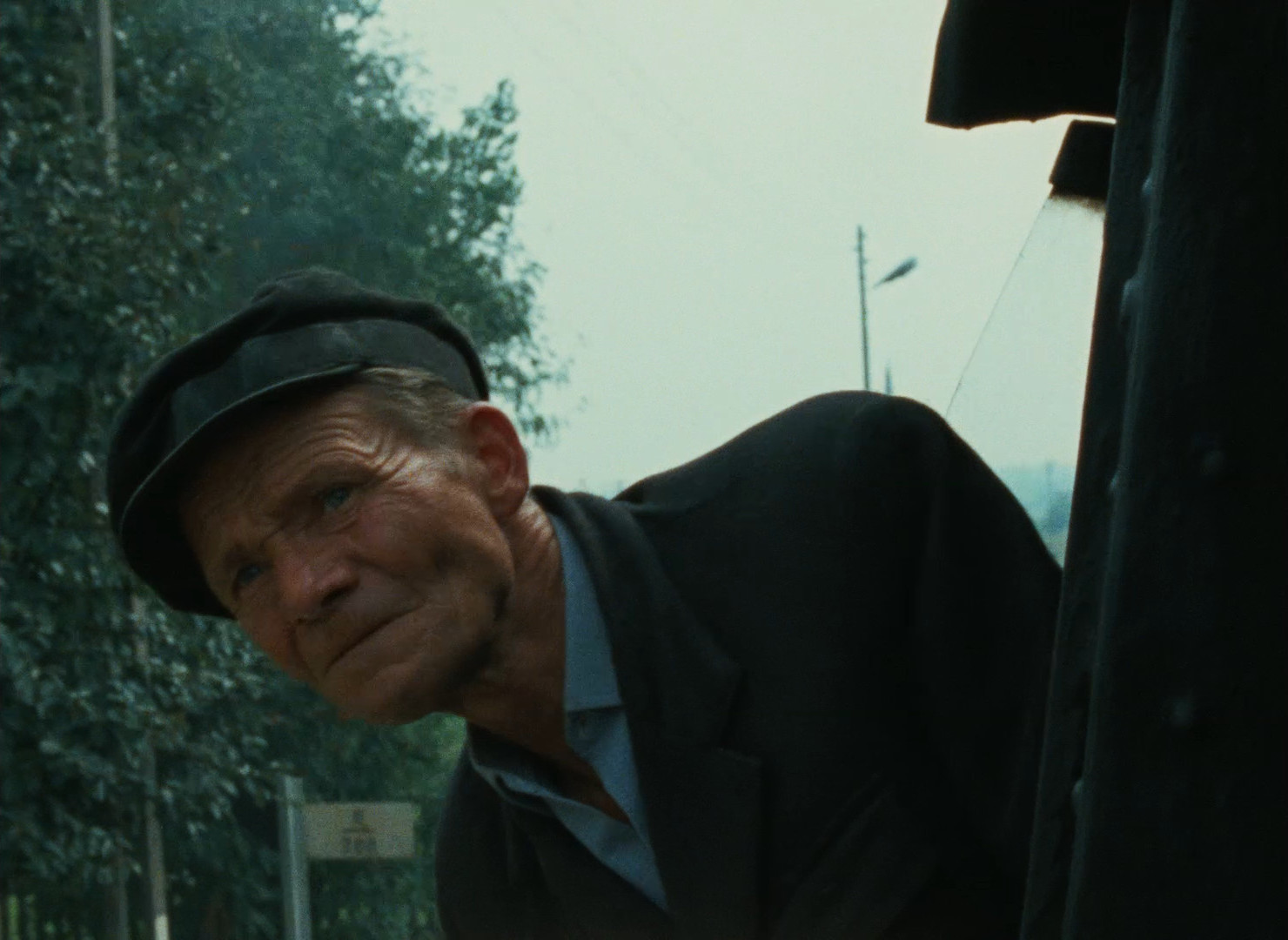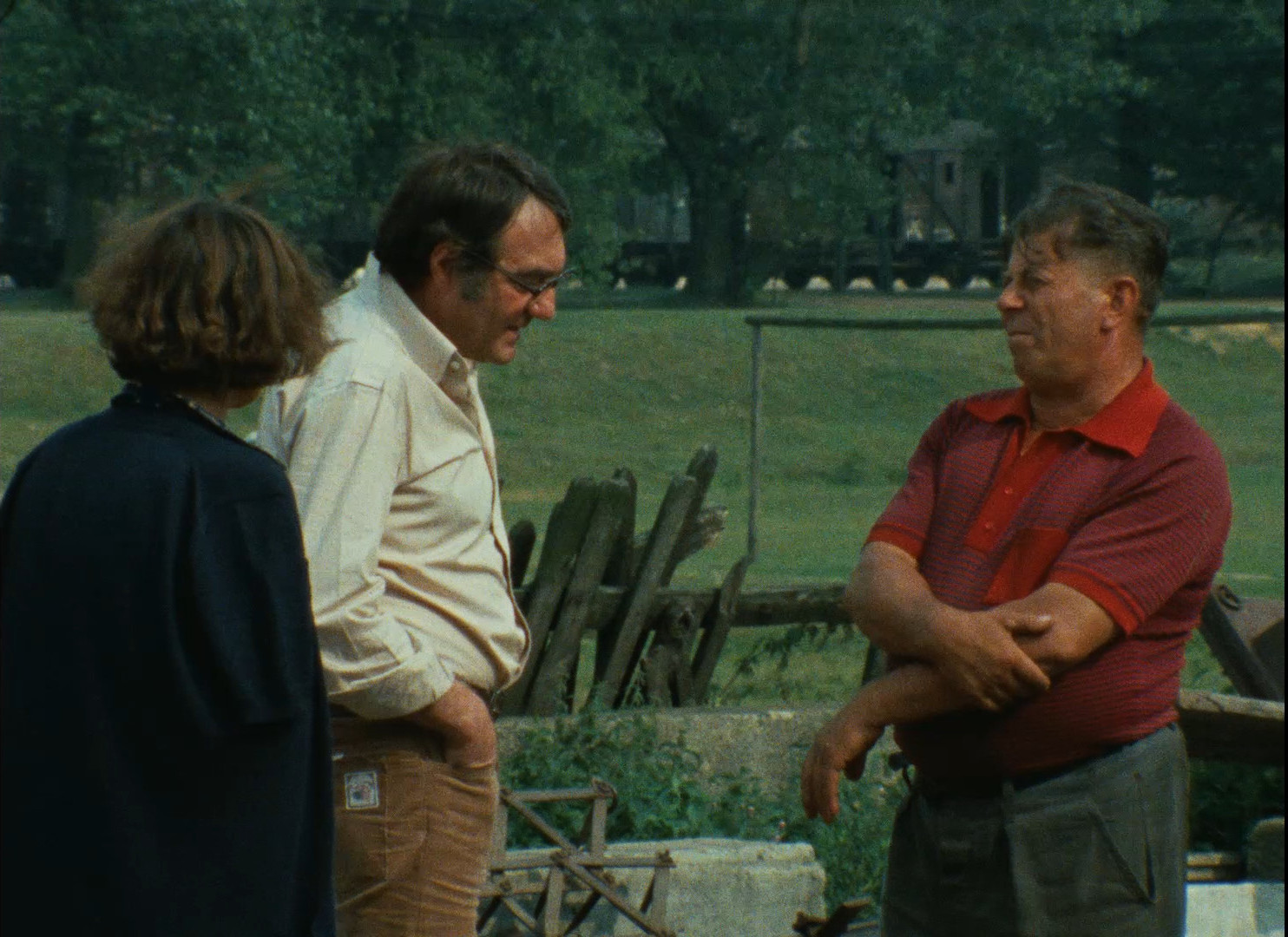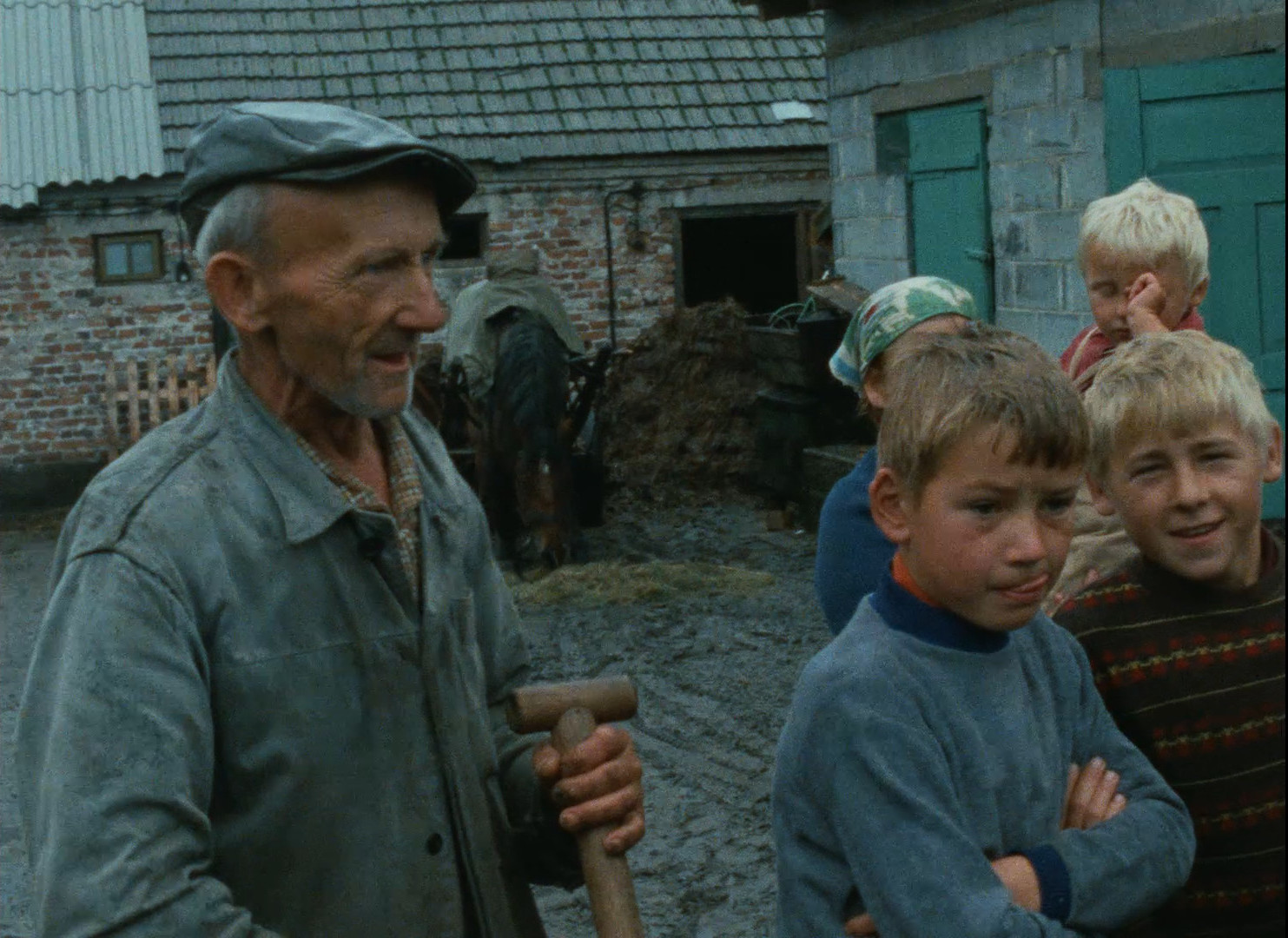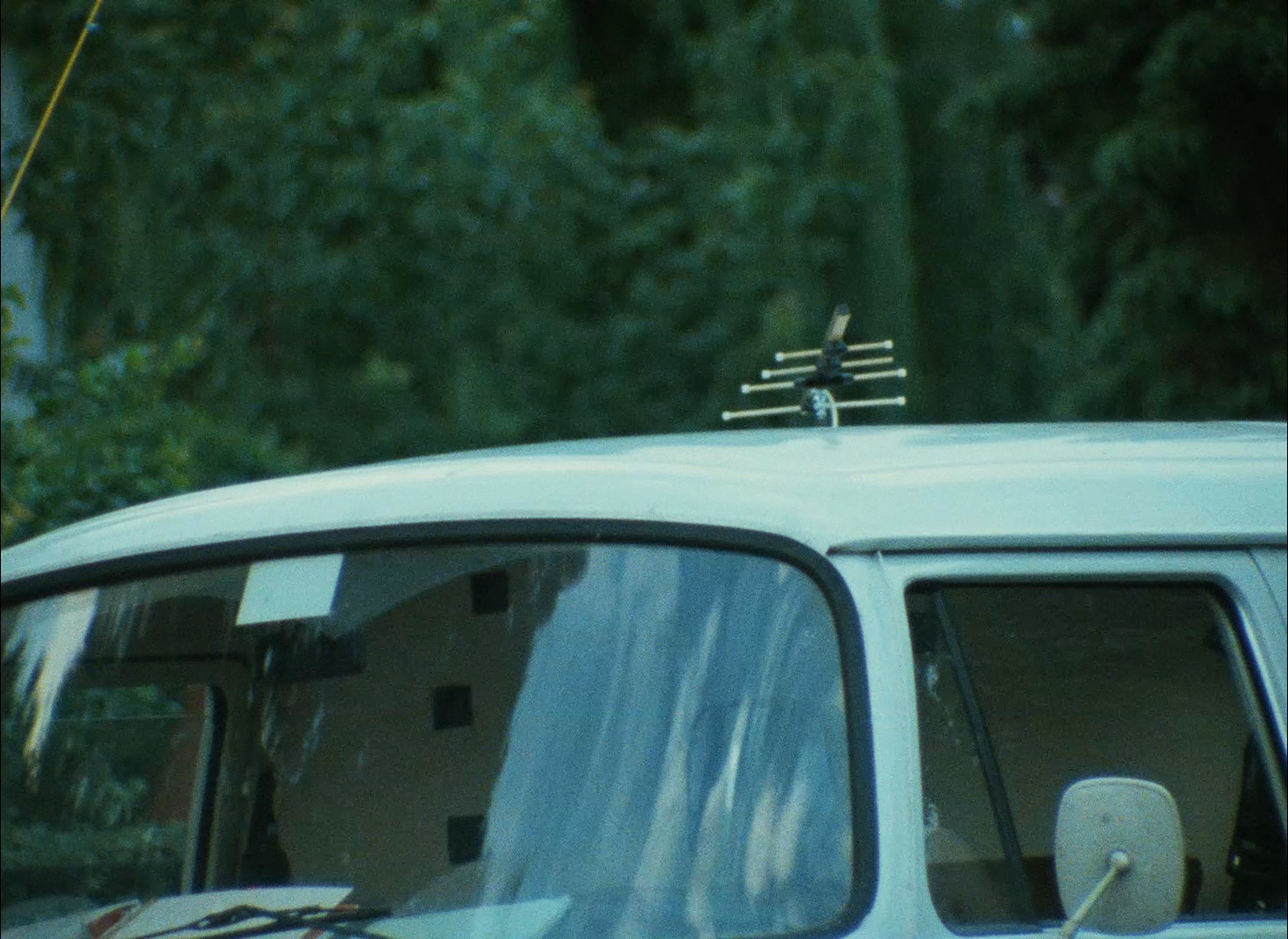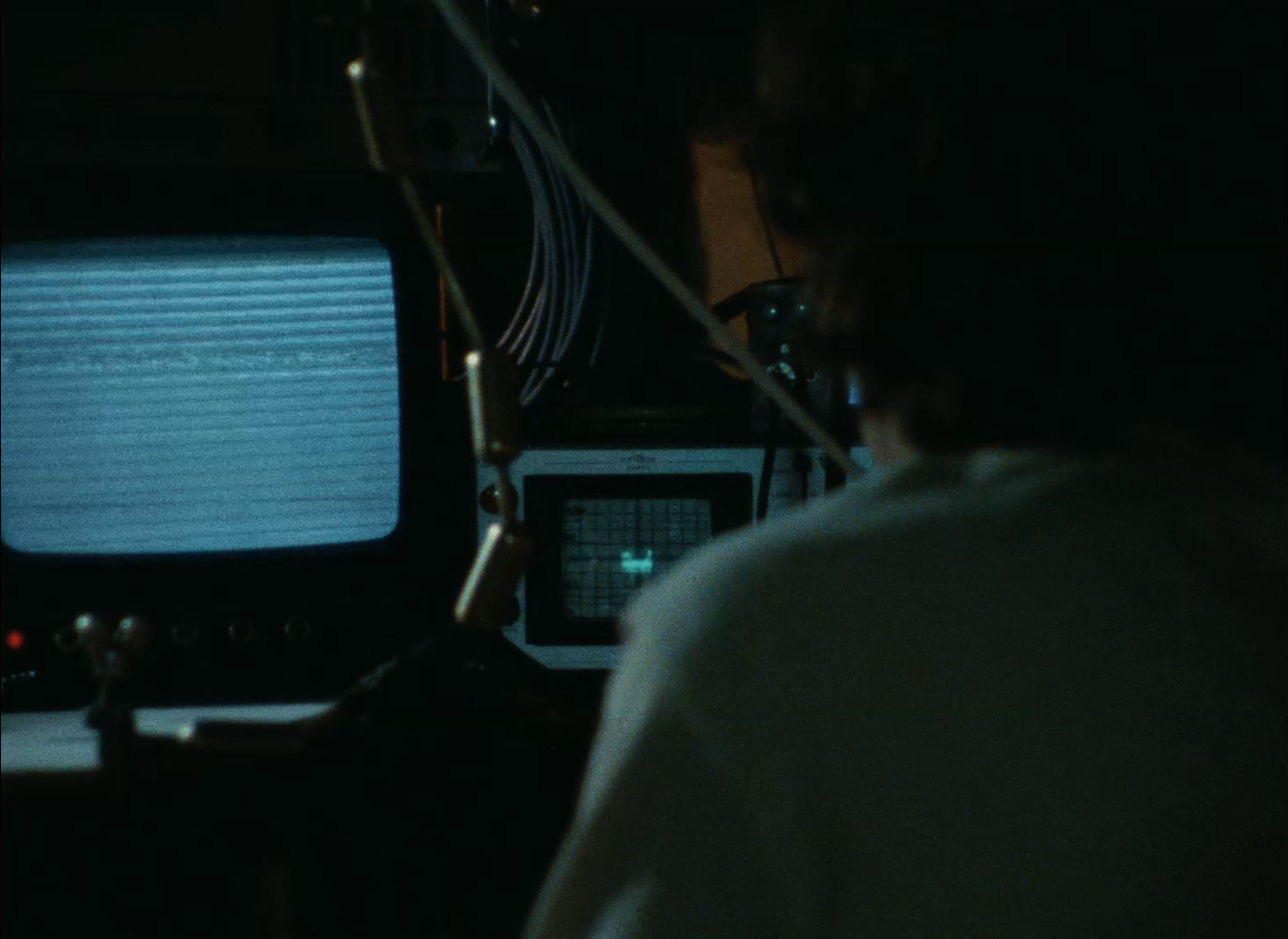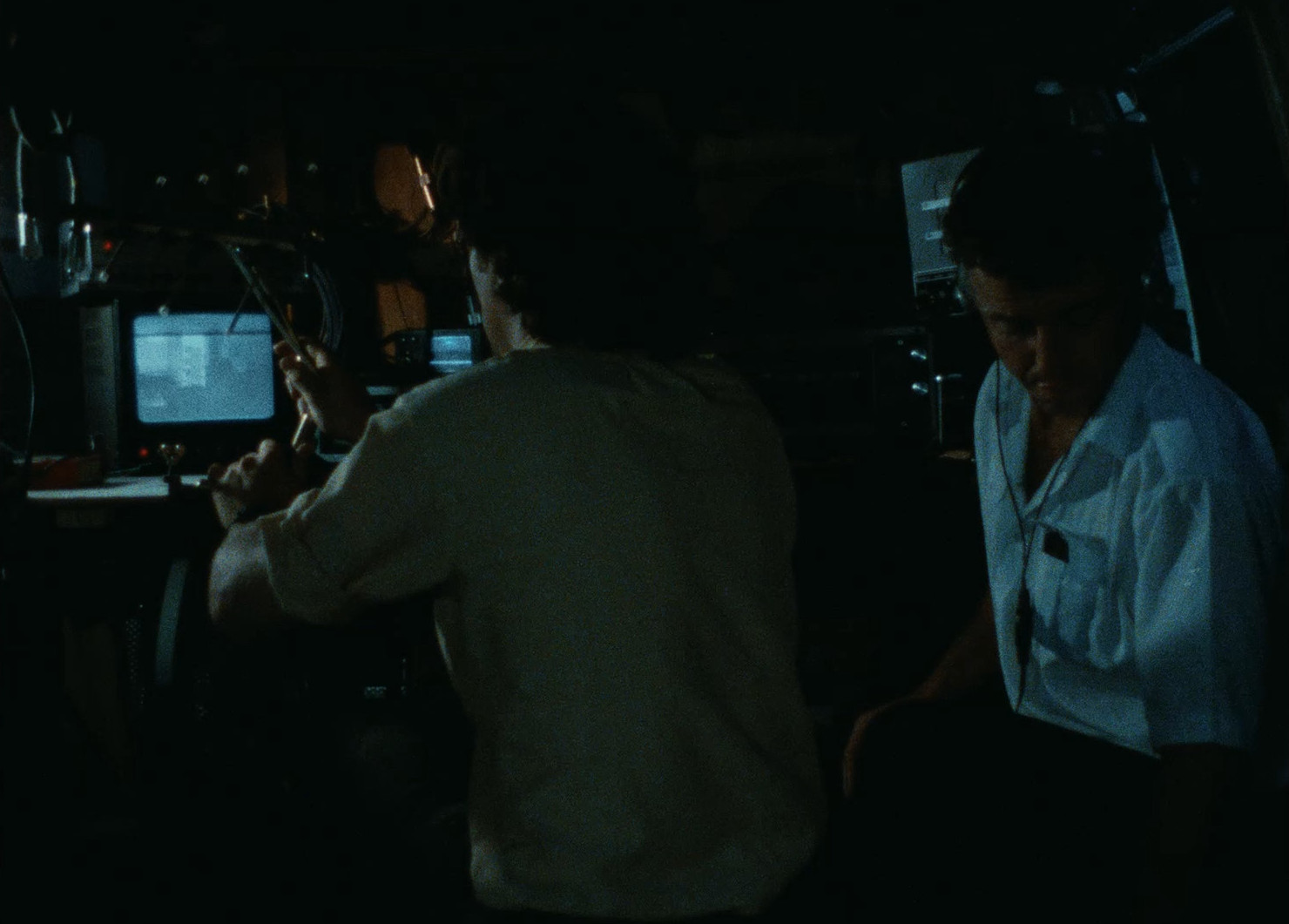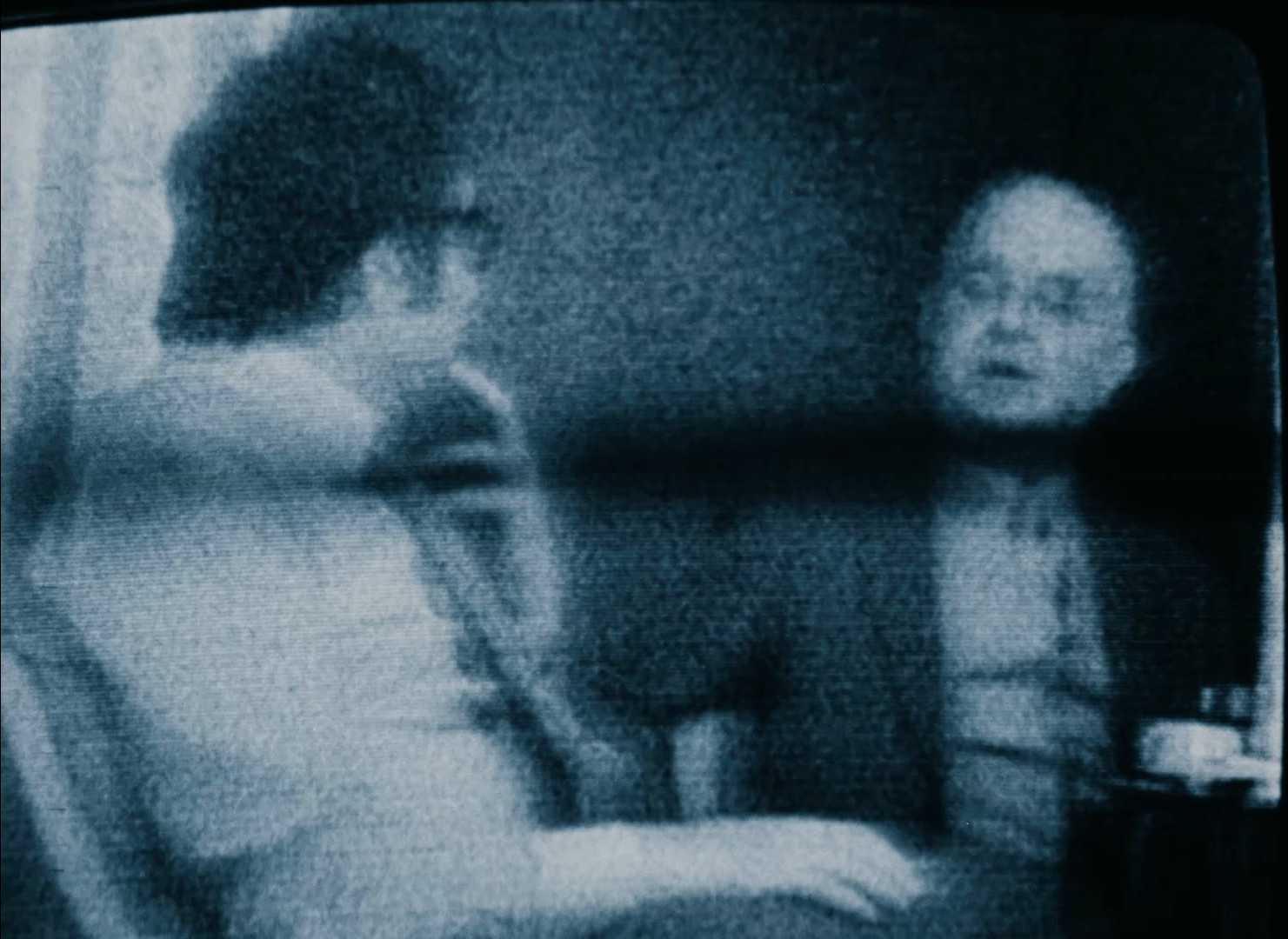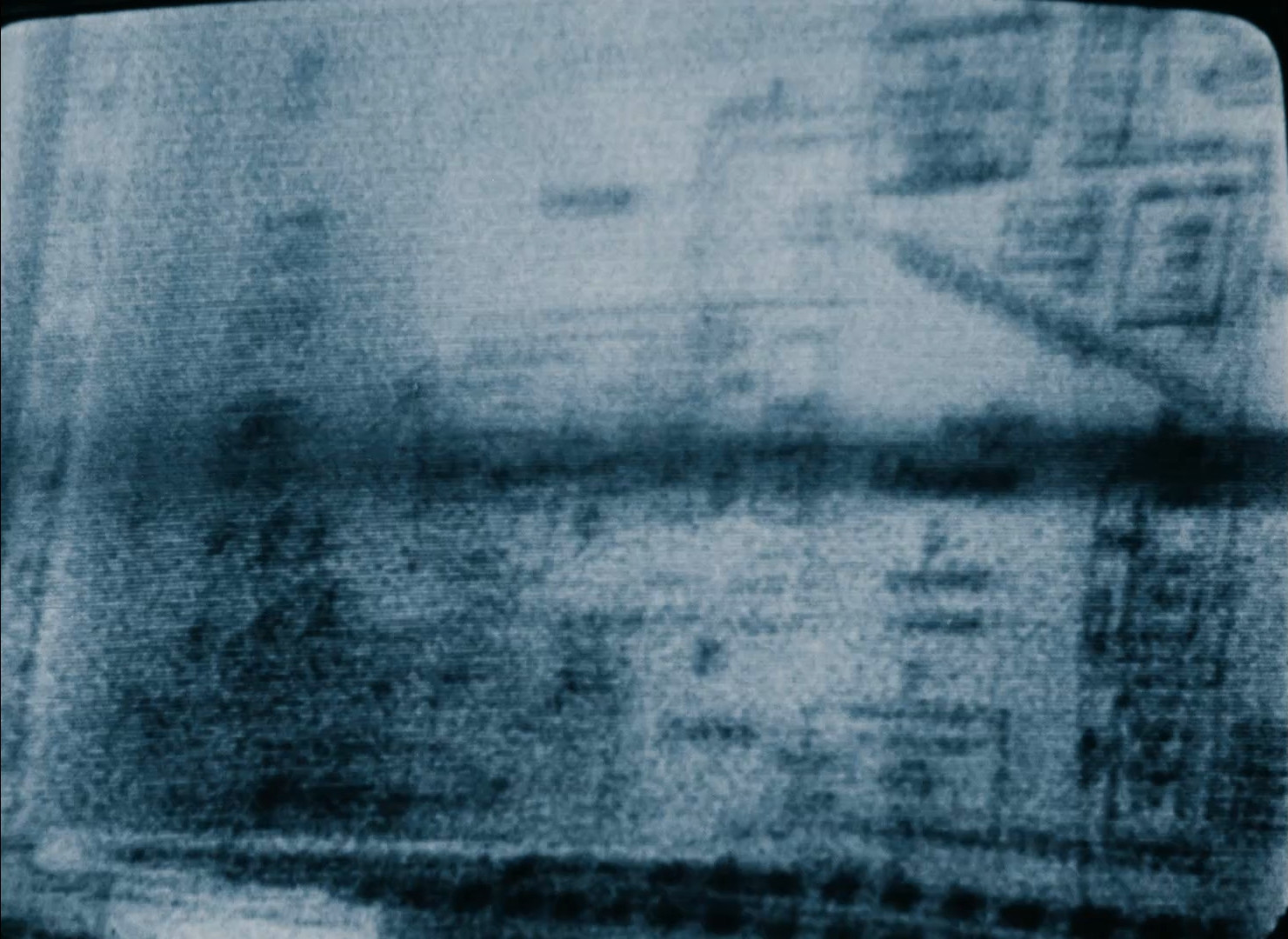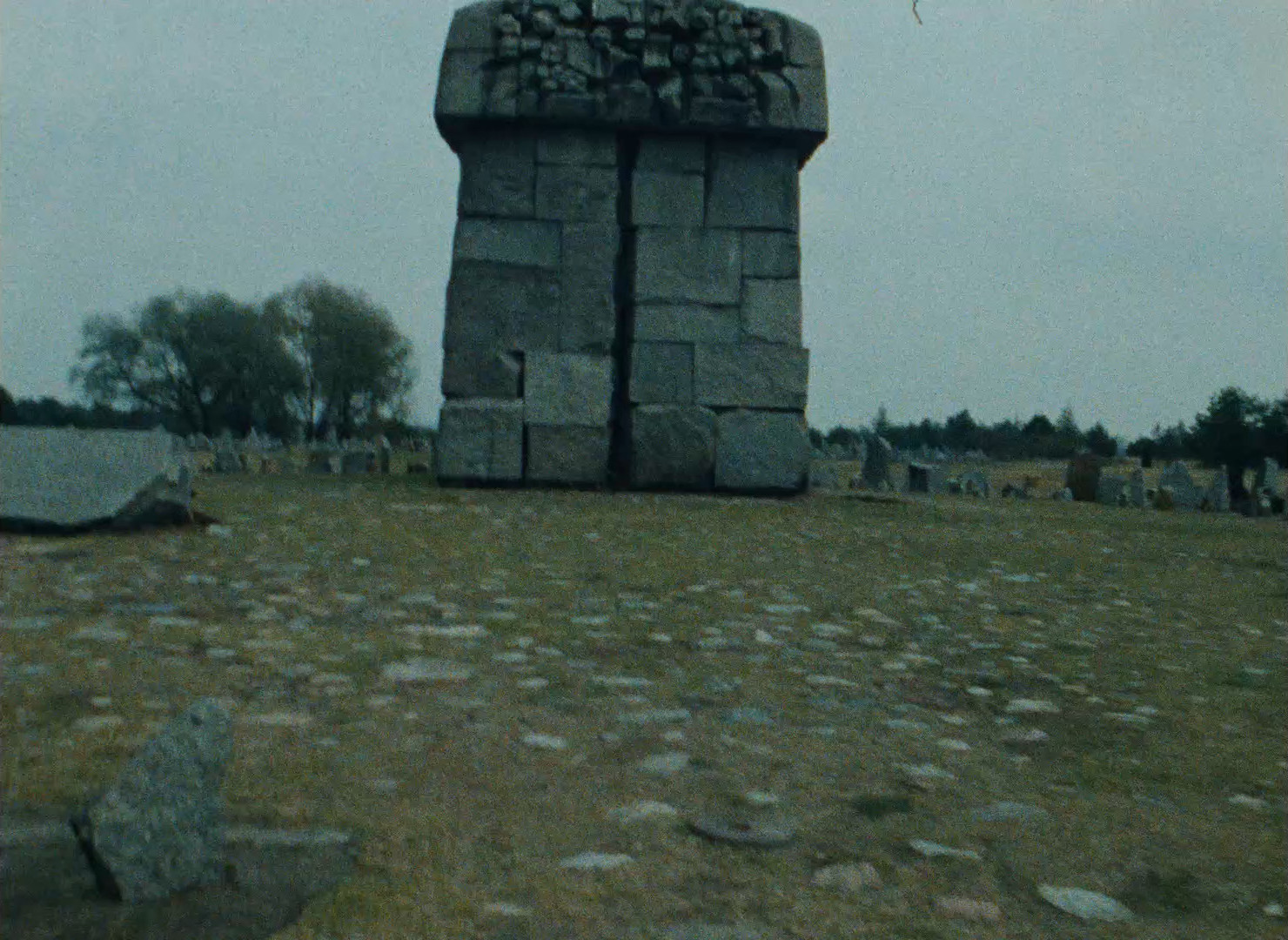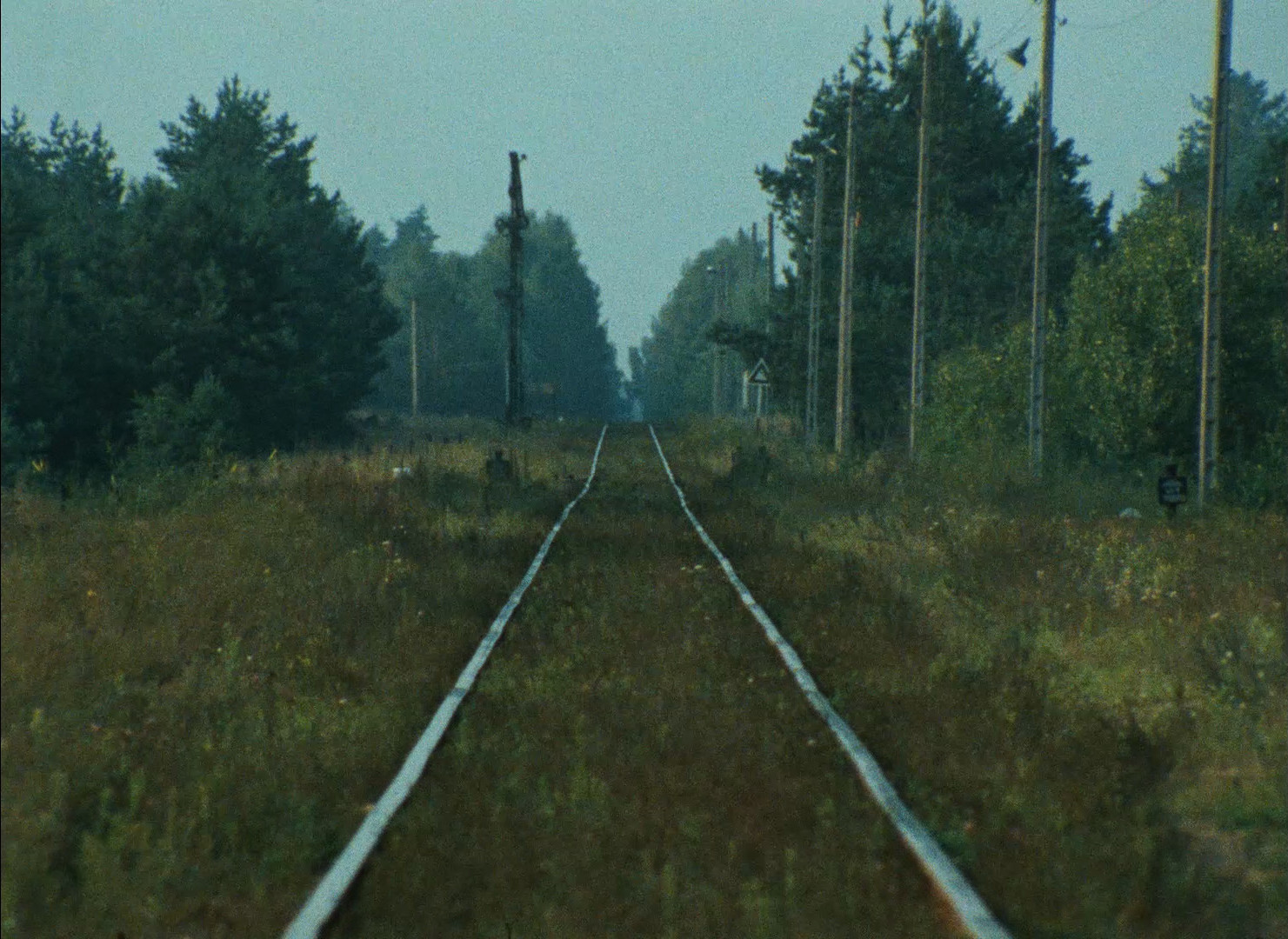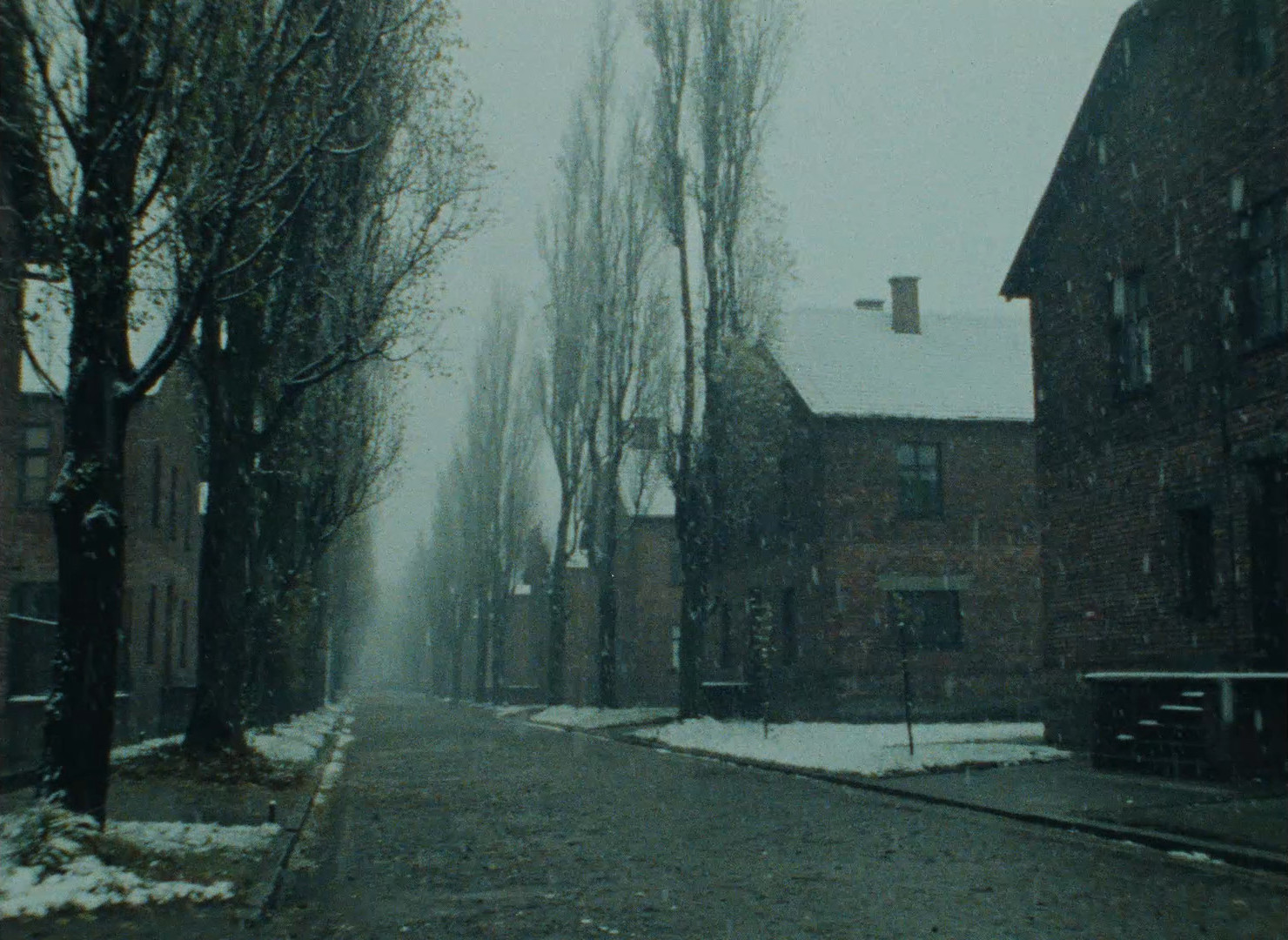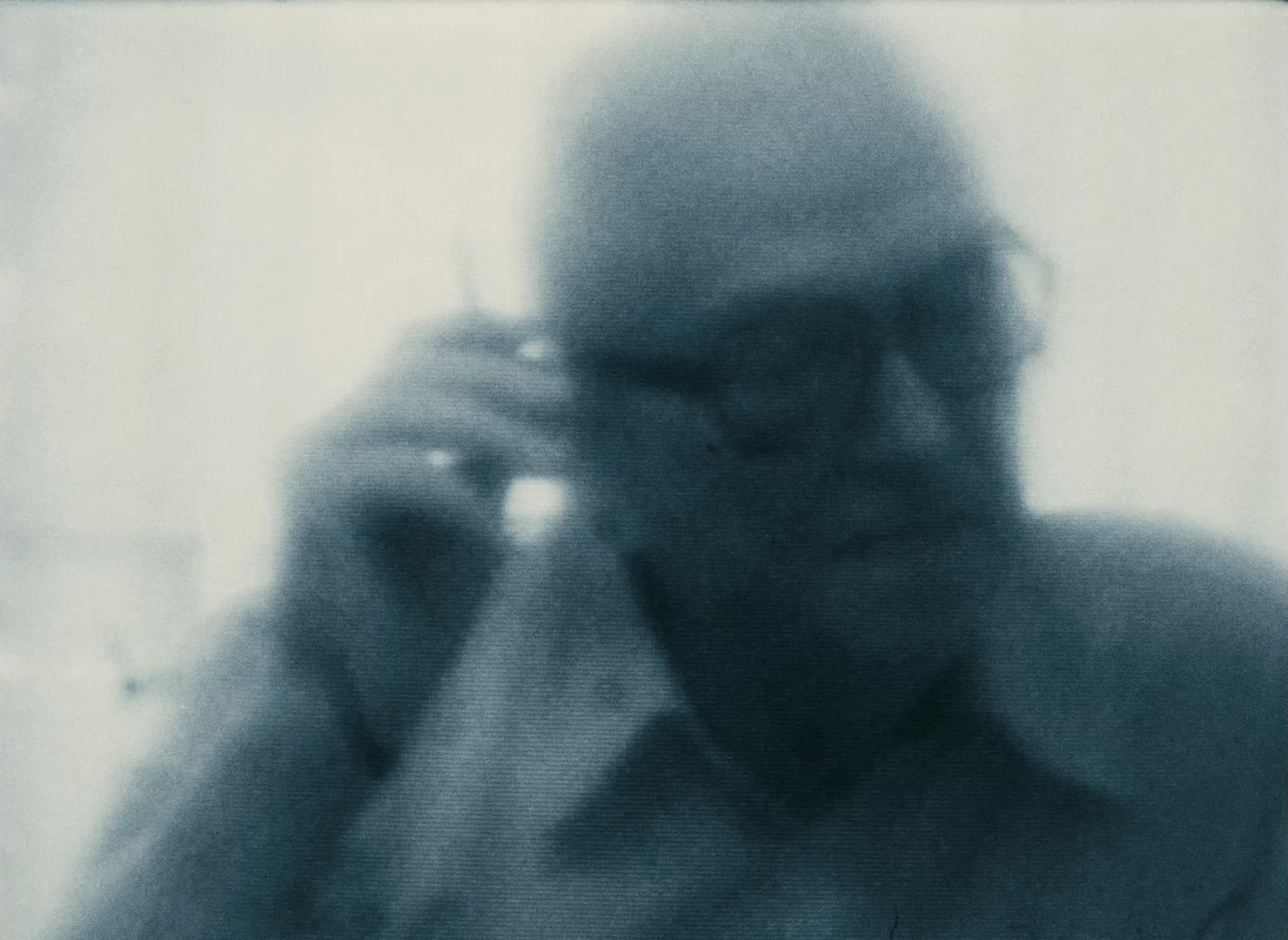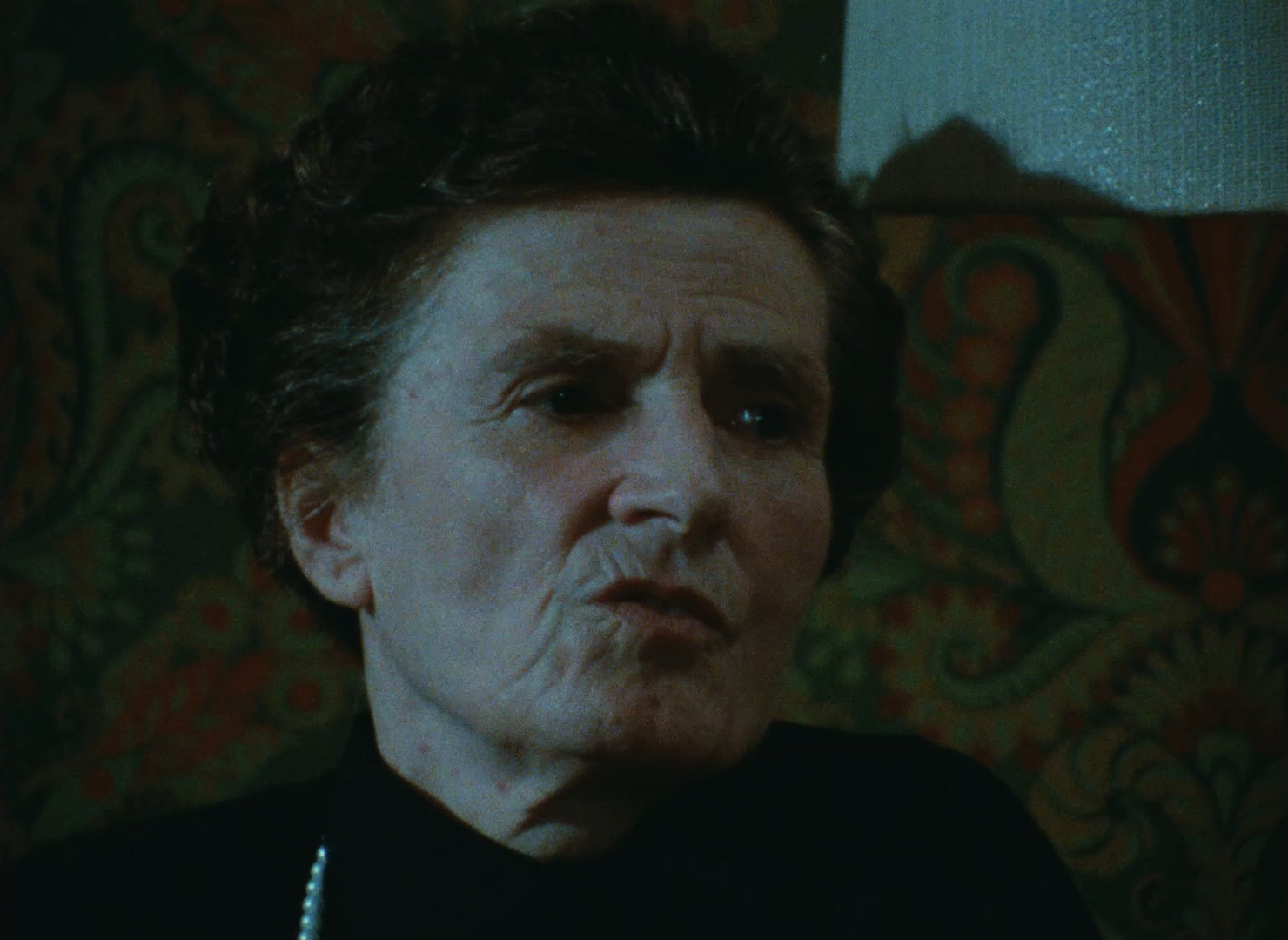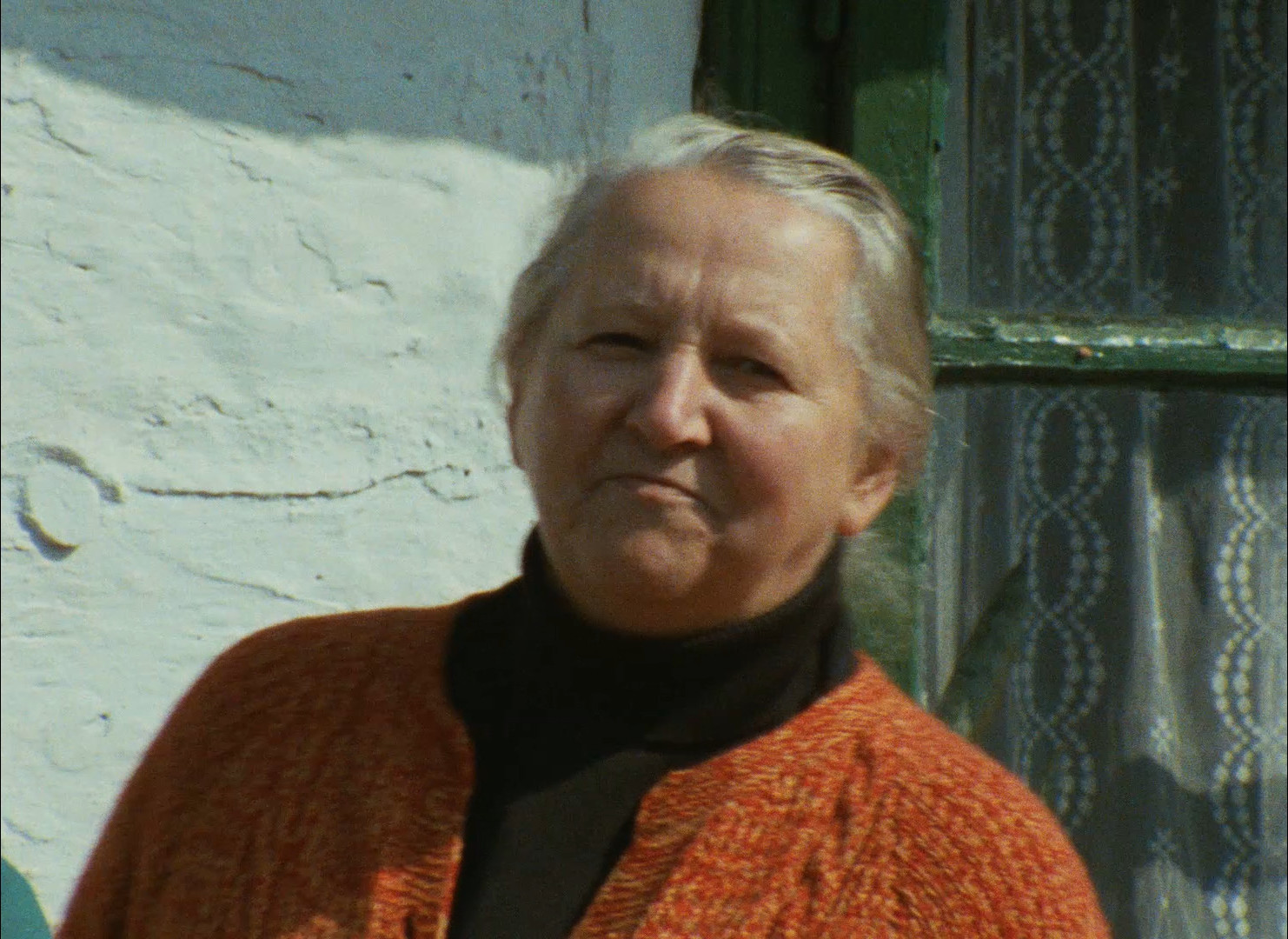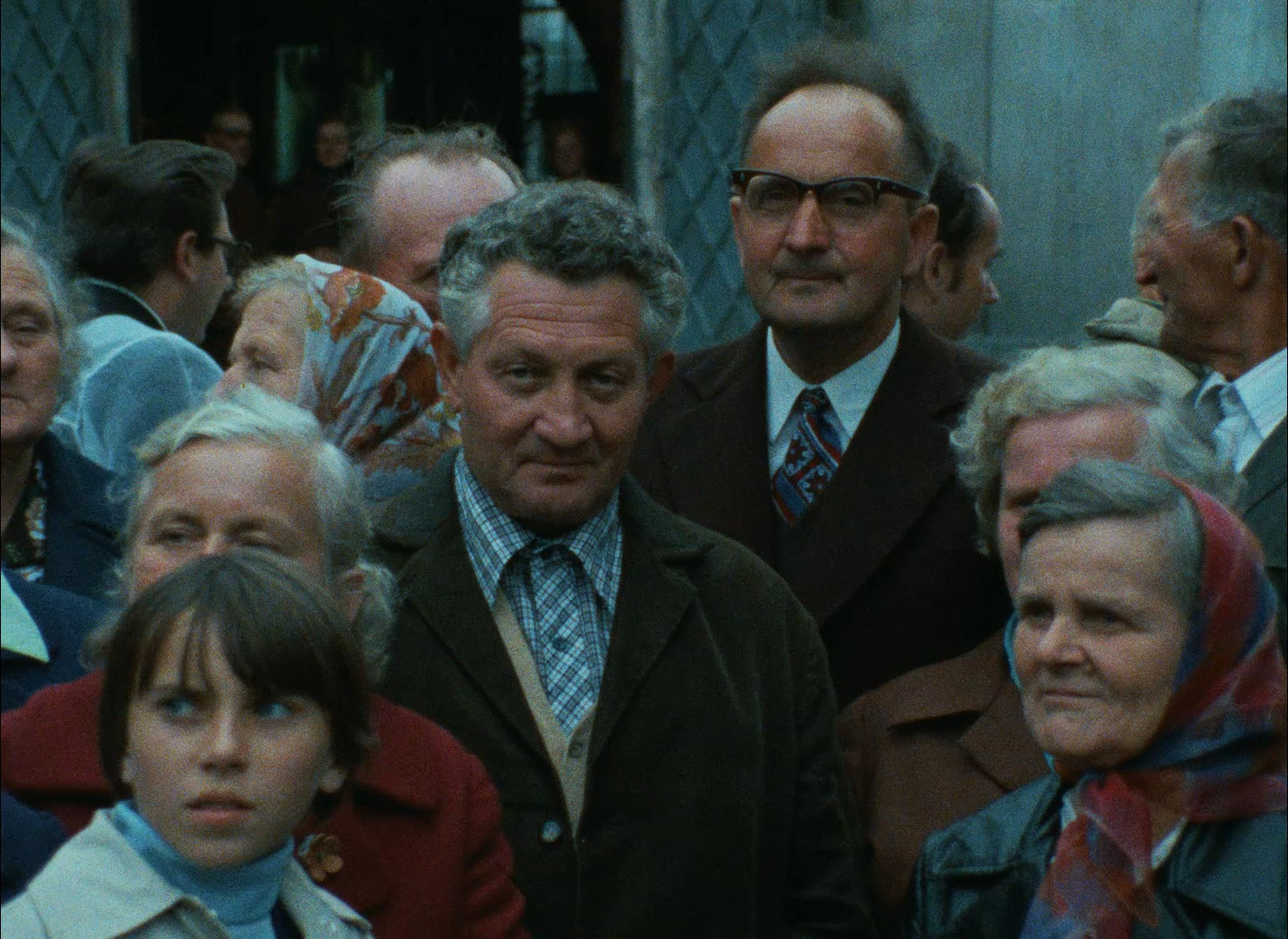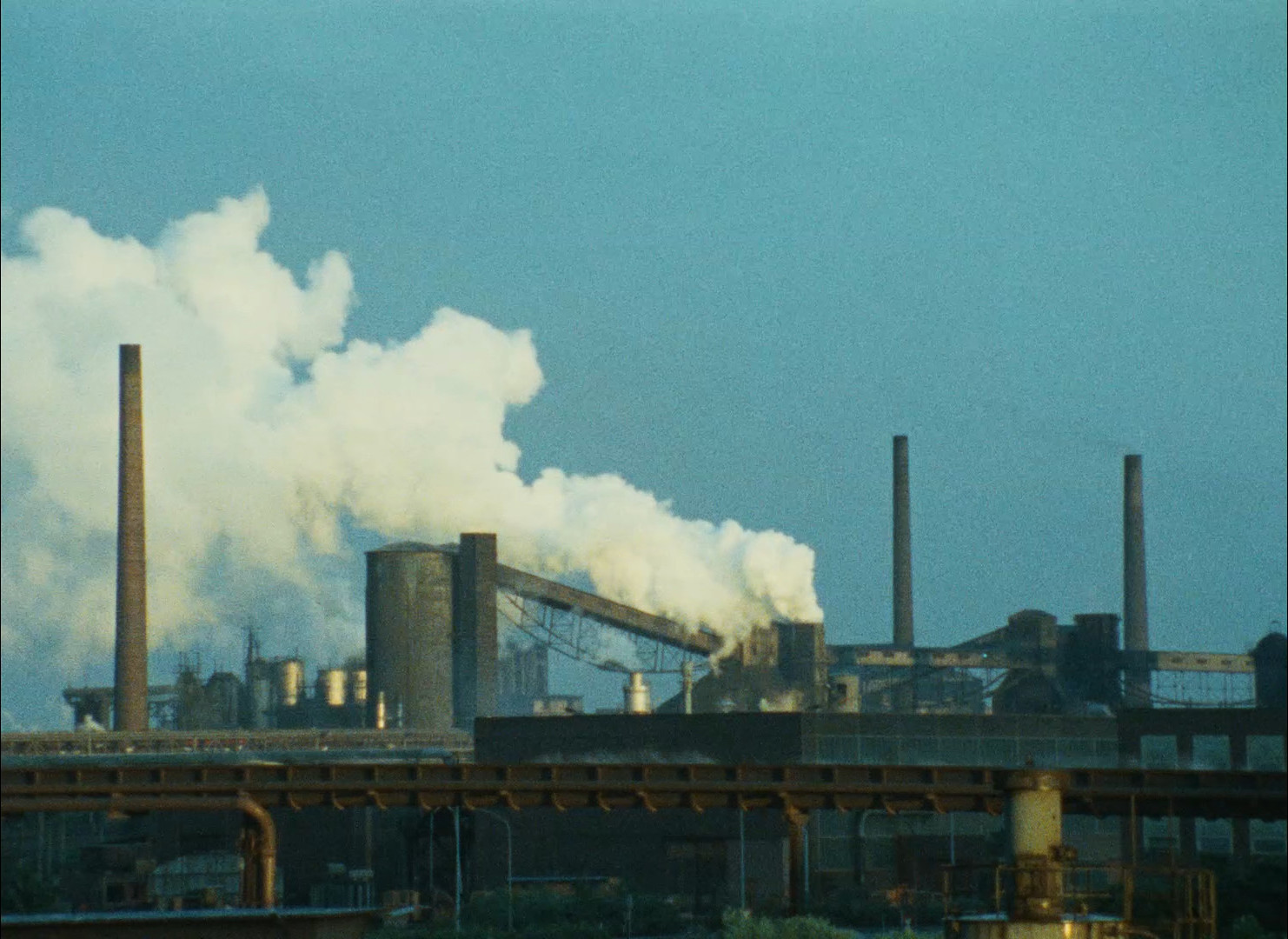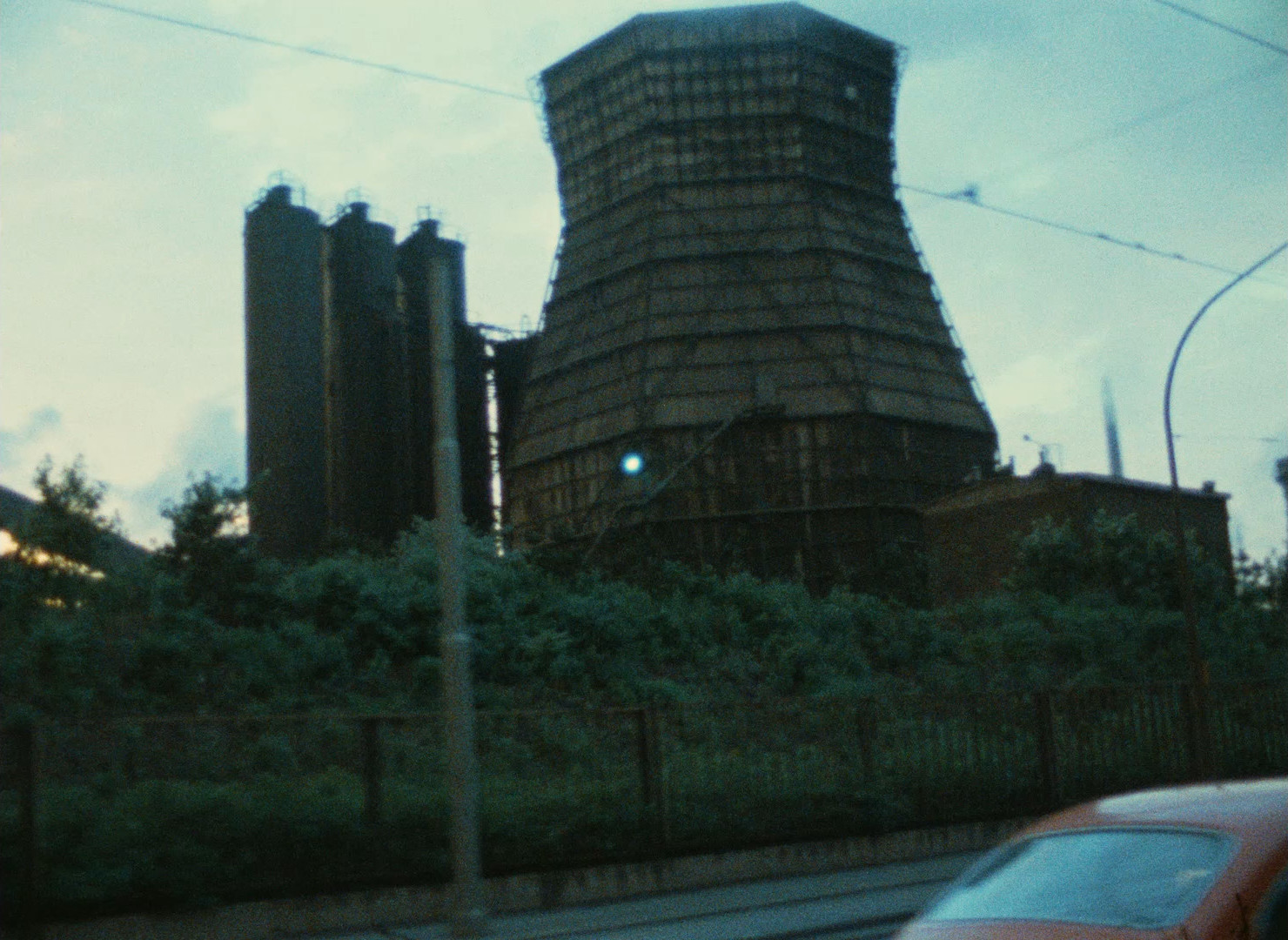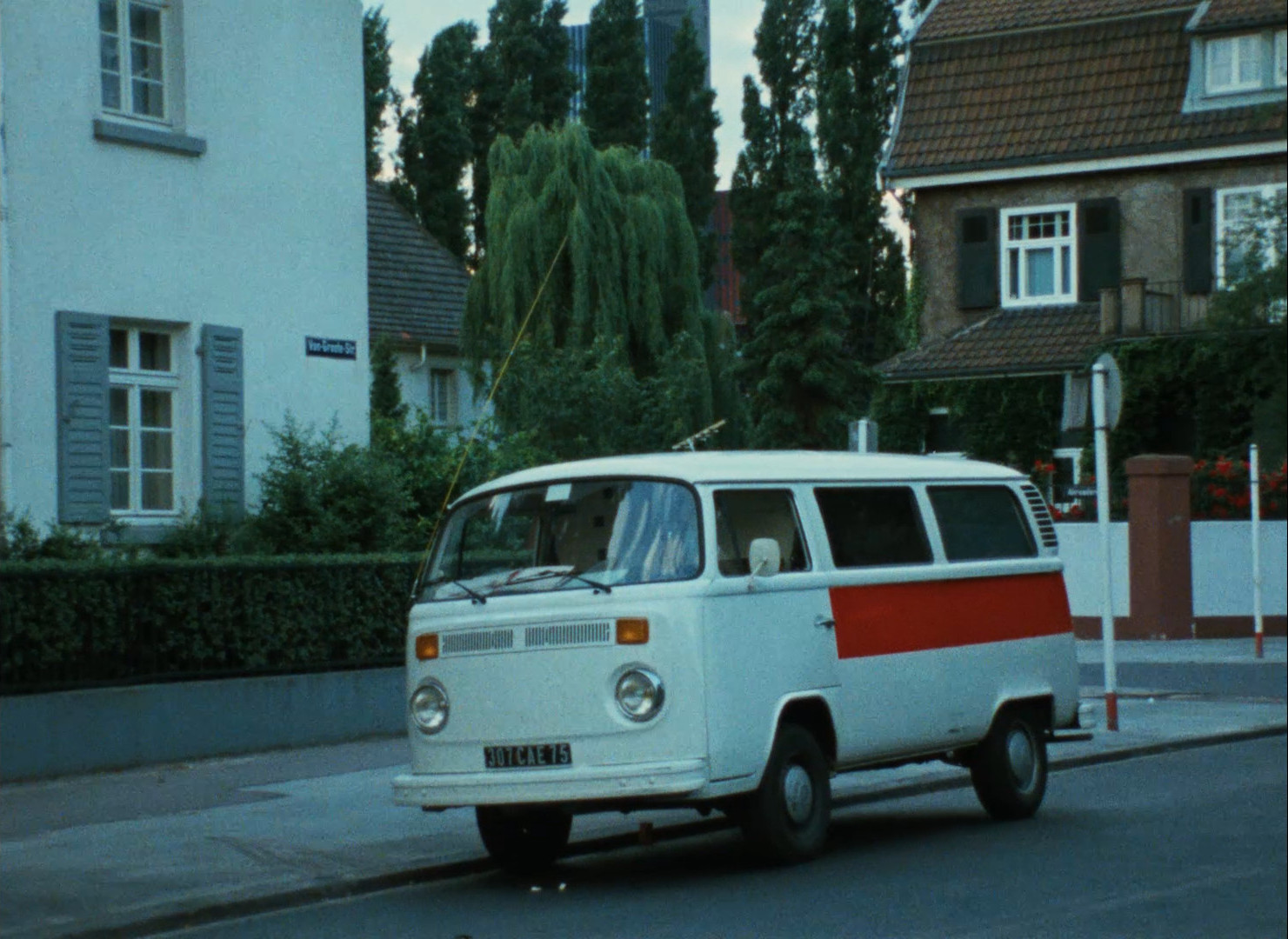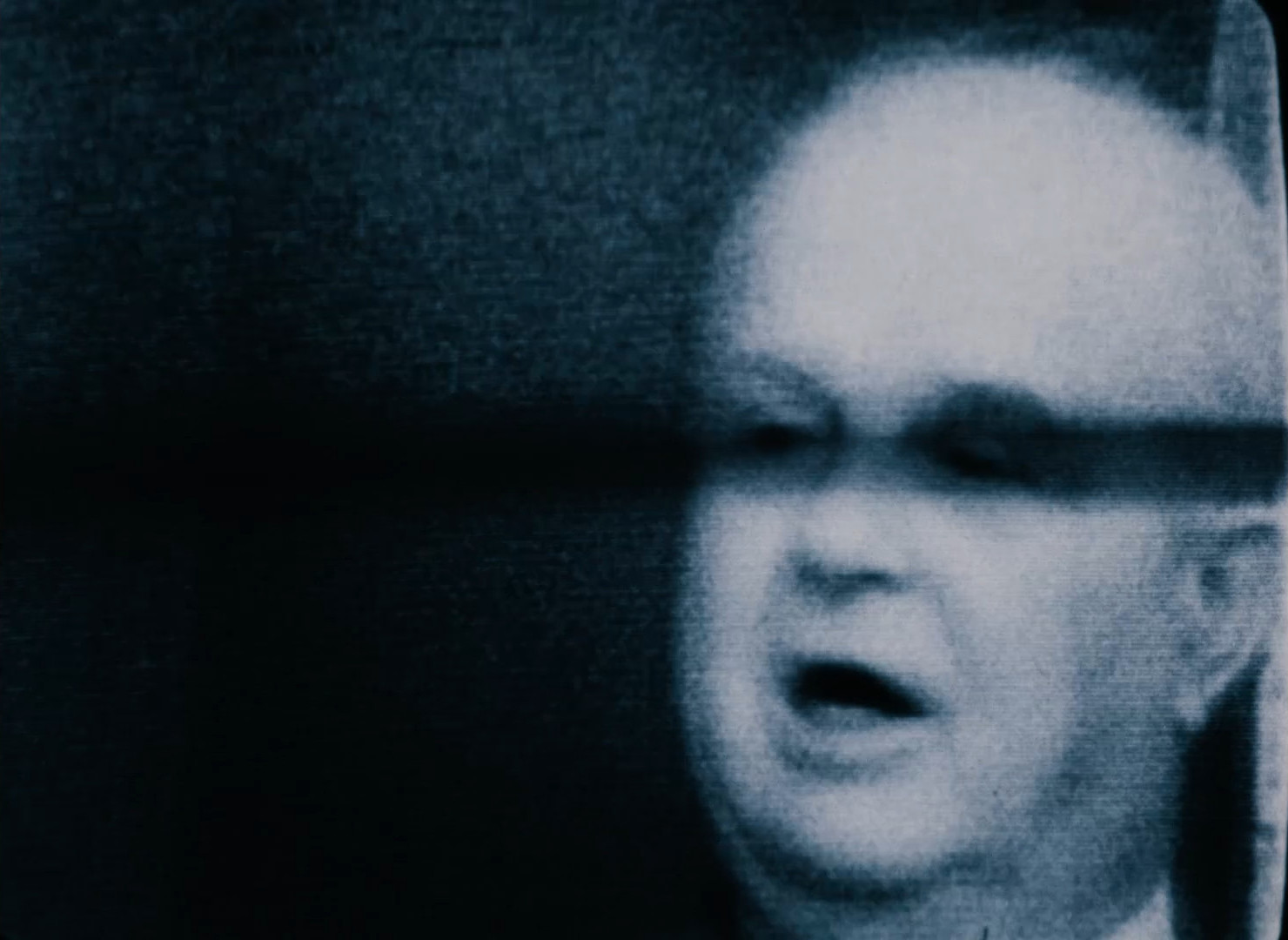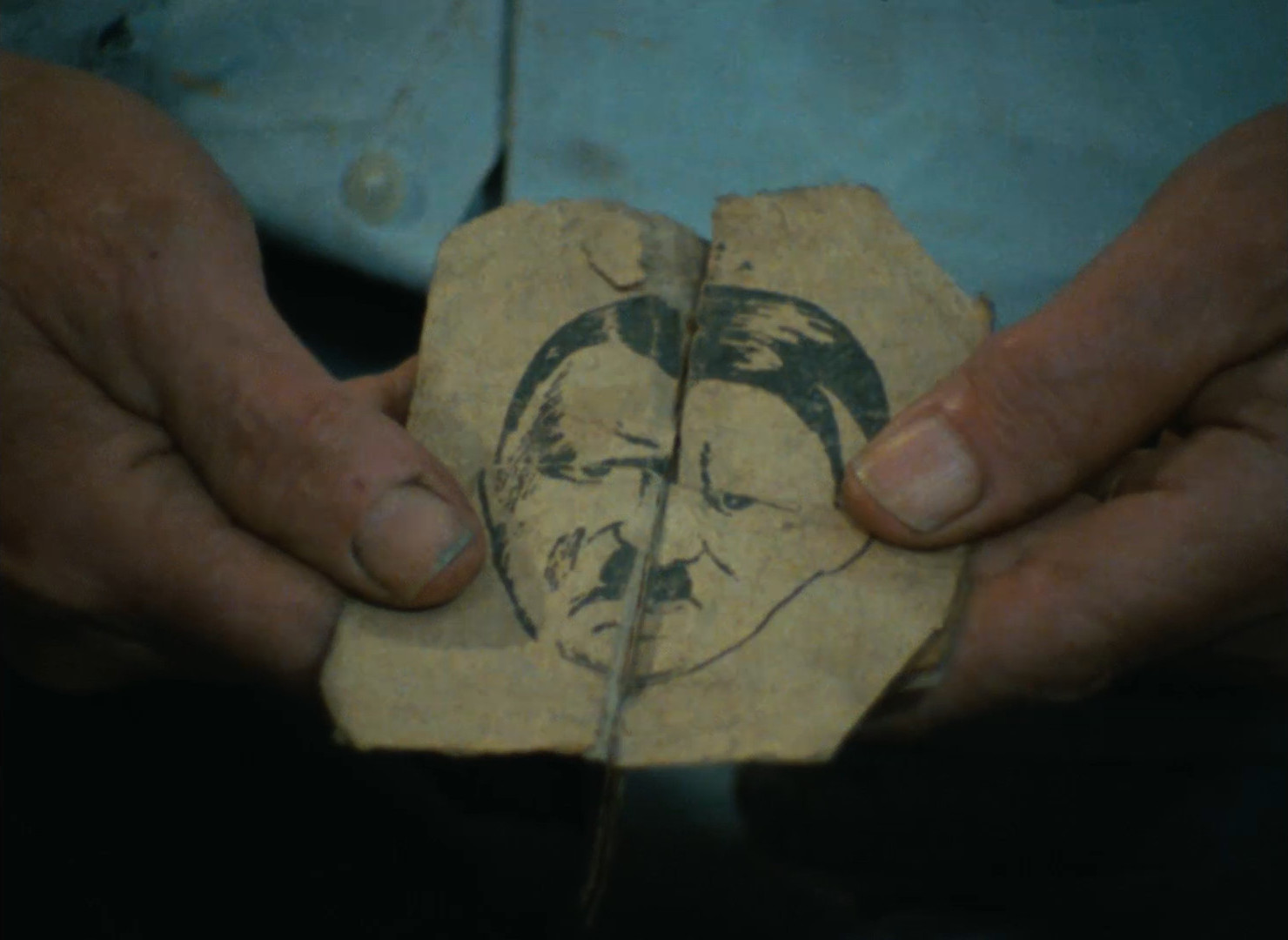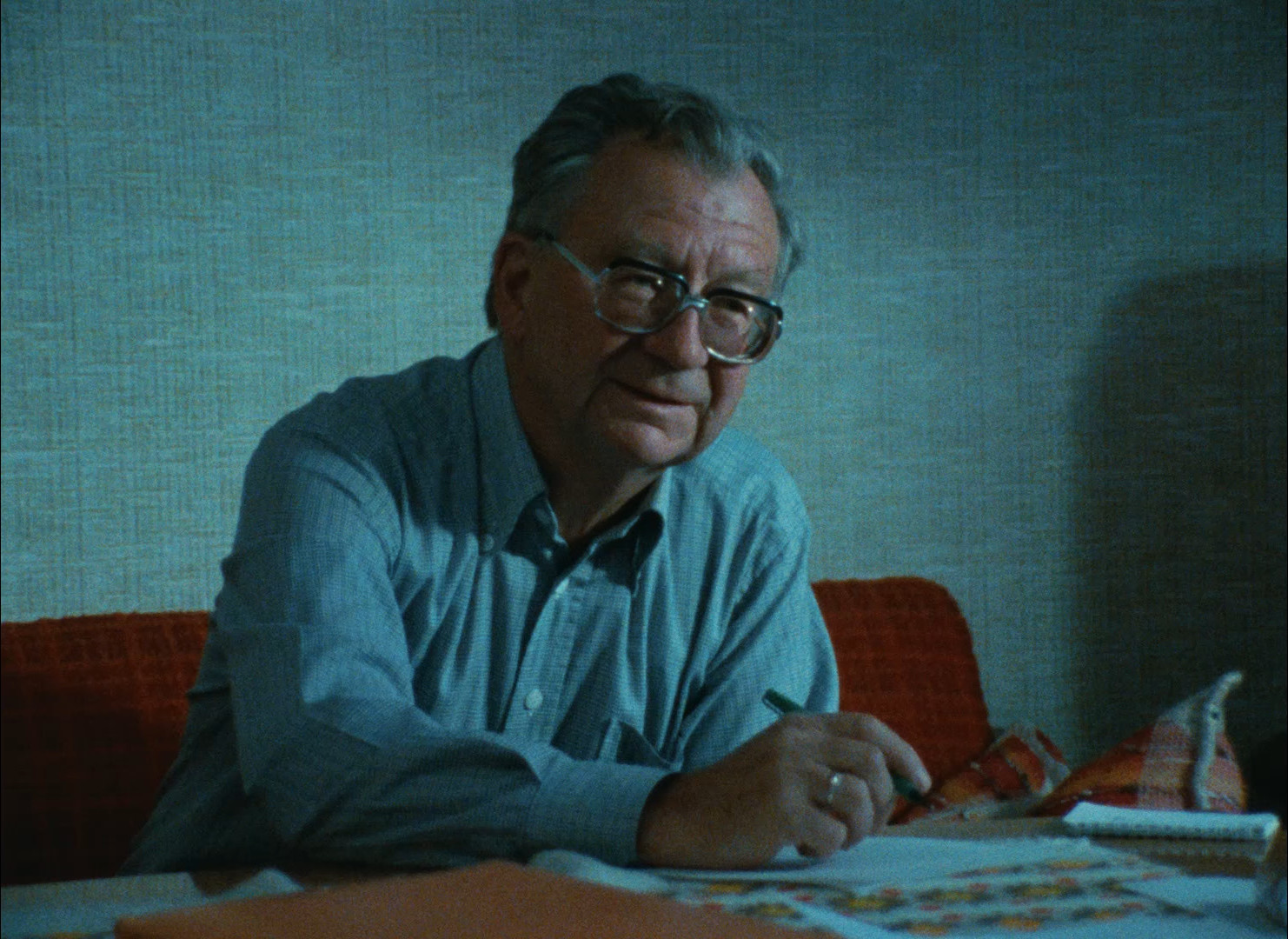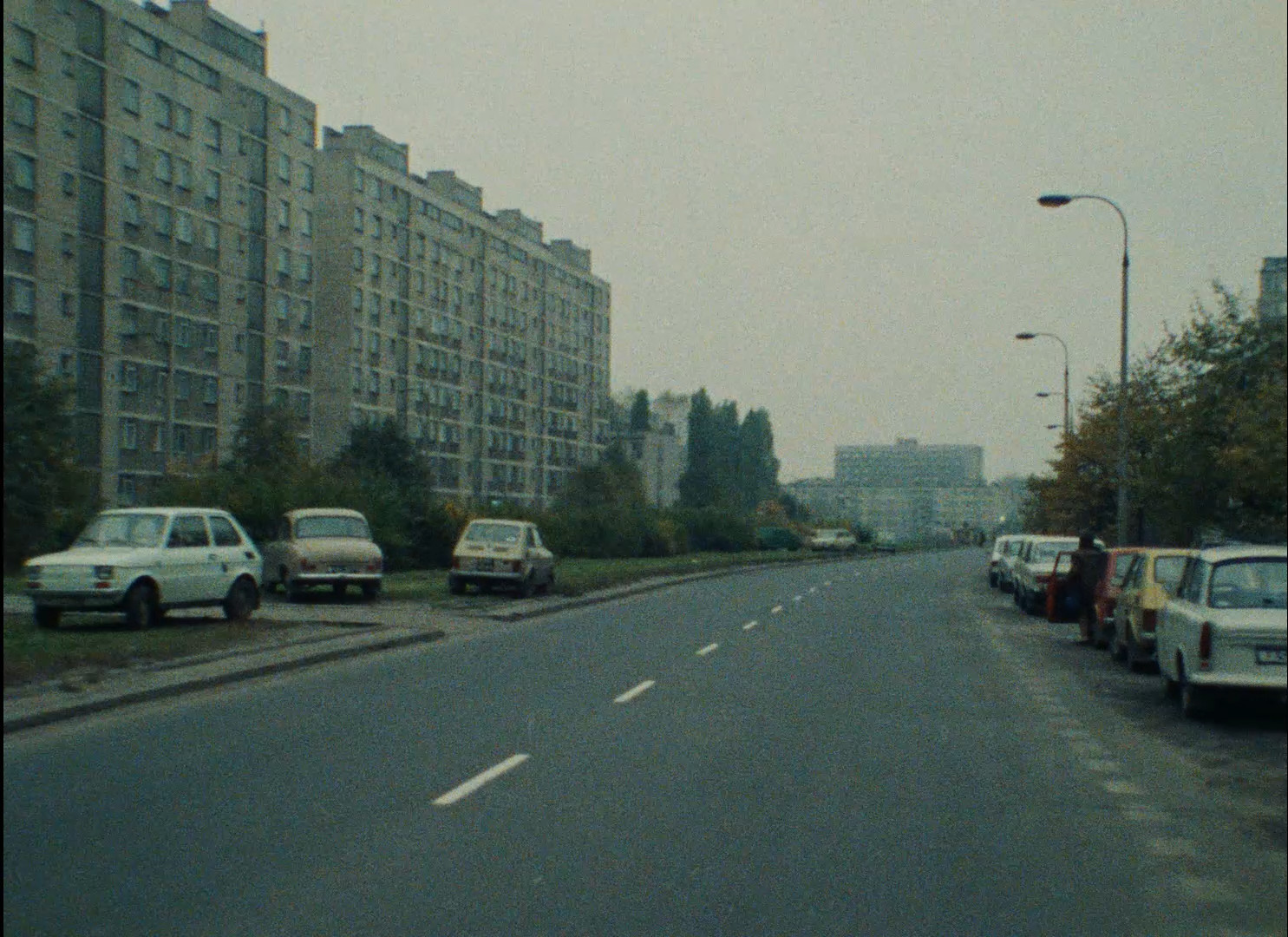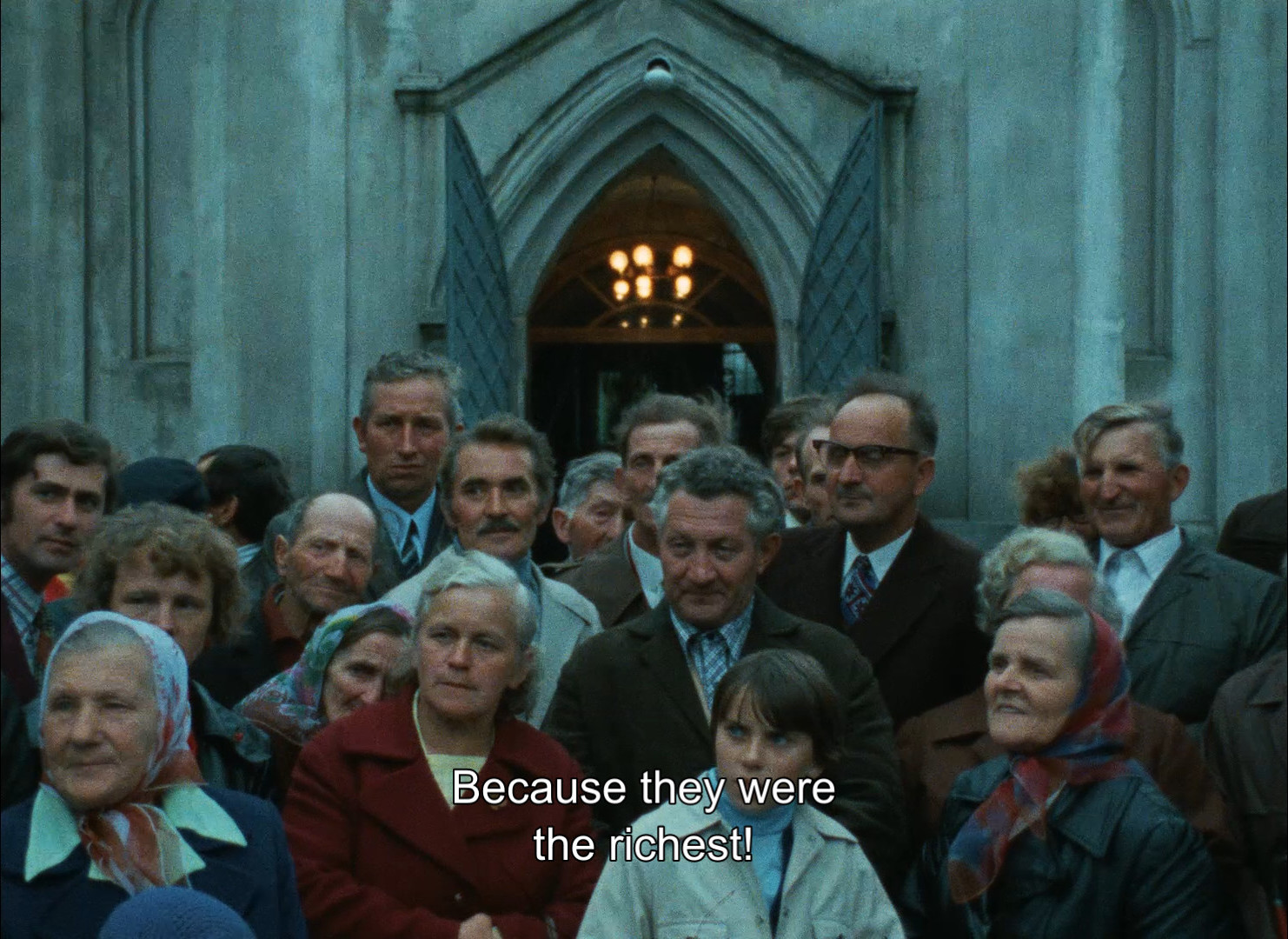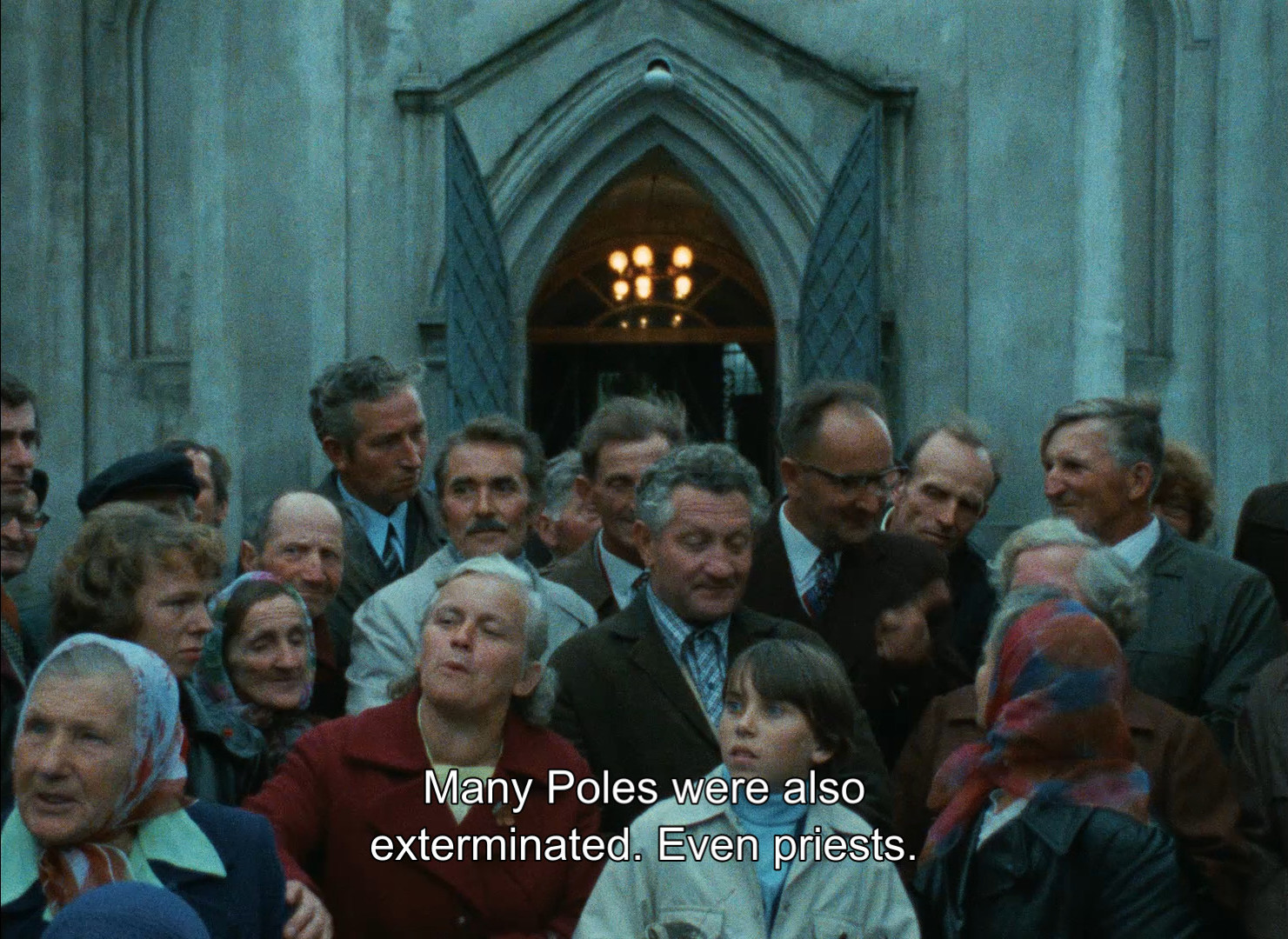Shoah. Claude Lanzmann. 1985. ⚂
I suspect I’ve seen this before: Was it serialised on TV in the 80s? But it’s just a perfect day for watching this nine hour kneeslapper, isn’t it?
Oh, yeah, I have definitely seen this before: I remember the really annoying way it has of have people talking in Polish/Czech/whatever language, and then we get a voiceover translation in French, and when that starts, we get the subtitles.
IT IS FUCKING ANNOYING!
I guess you can claim that it’s an aesthetic choice: The French voiceover isn’t really a voiceover, but the translator actually translating, real-time, while the director is asking these people about their er experiences.
It usually goes like this: We get the director asking a question in French (subtitled), then the translator asking the question in German, then a guy answering in Polish, and then the translator repeating it in French (subtitled).
So we hear the people talking in their own voices, and that’s what’s important to the director? I mean, like gasp. I mean, they could just have subtitled them without going via French, but I guess the French hate subtitles…
[hours and hours pass]
It’s difficult to critique a movie like this, of course. The subject is so monstrous as to make any quibbles sickening.
But. This isn’t a good movie. There are some heartbreaking testimonials in here, but it’s not even an effective movie in reminding you of the horrors of Nazi Germany.
I think perhaps this movie would work better for me in a less distracting environment than here on my couch? Like, in a theatre? Because it’s really hard to keep your mind on the movie when half of it is somebody talking a language you don’t understand to the camera (without subtitles). (OK, he mainly drops the gimmick after a few hours and lets victims talk (in German, French or English) without the back-and-forth to French.)
The cinematography is pretty lush and beautiful.
Some German interviewees were reluctant to talk and refused to be filmed, so Lanzmann used a hidden camera, producing a grainy, black-and-white appearance. The interviewees in these scenes are sometimes obscured or distinguished by technicians watching the recording.
I mean, the Nazi with the telescopic pointer and the diagrams just doesn’t seem possible to have happened, and it’s the director’s main Nazi viewpoint. On the other hand, perhaps the sheer ridiculousness of it all is proof that it’s real.
During one such interview, the hidden cameras were discovered by a former Nazi and his family. Lanzmann and his assistant were so badly beaten that Lanzmann was hospitalised for a month.
But especially the bits in the van where there’s technicians receiving the hidden camera footage? In real time? Being transmitted? But why? Hm… Well, I guess a VHS recorder would make too much noise? So perhaps it’s actually real? I’m just saying that the movie could perhaps have let us in on the gag.
This seems to say that that’s bit’s staged, as I assumed. Or is USHMM a Nazi disinformation site? You never can tell these days.
The New Yorker takes the scenes as fact:
Lanzmann got hold of a paluche, or paw, a slender, stick-like video camera newly devised by the innovative designer Jean-Pierre Beauviala. Lanzmann hid it in a bag with a tiny hole for the lens, and had one of his cameramen point it at an unsuspecting interview subject. He hid a small microphone behind his tie. A van was rigged with video and radio equipment that rendered the stealthy images and sounds on a television set.
Well, I don’t know… And I’m starting to sound like a Nazi disinformation campaign myself, which is never a good idea. Please misunderstand me the correct way! I believe in everything this movie is saying! But these bits makes me wonder whether this particular director is making these particular scenes up for some reason.
I mean: It’s a minor quibble, and I’m sorry for even bringing it up.
ANYWAY.
One thing’s for sure: If this movie had been released today, it would have been forbidden in Poland, because there’s a lot of anti-Semitic poles in here, and those have never existed, according to the current regime there. And even hinting at it is illegal.
So you get Polish people explaining why their Jewish neighbours were killed.
But also that they themselves were the real victims here.
I can believe that. (I mean, that they’d say that.)
I know I’m just typing a lot of stuff here, but there’s a lot of lulls in the movie, and I have to do something, right?
I have three more hours to go, so perhaps I shouldn’t write a summing-up now: Perhaps there’ll be a twist. And perhaps it’s just me. The facts presented in this movie are horrifying… but it’s presented as if the director is unveiling unknown truth after unknown truth to us, while it’s virtually all stuff that anybody should already know.
I hate all documentaries, anyway. If somebody has something to say, they can like write a blog about it, and then people can skim it. I distrust the form: It’s useful for demagogues, because the inevitable pull of the next scene means you can’t evaluate the present one (which is why the alt-right live on Youtube). With the written word you can argue with the text as much as you like.
So don’t mind me: If you like documentaries, here’s a documentary.
This blog post is part of the Officially The Best series.
